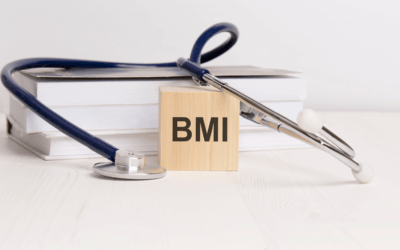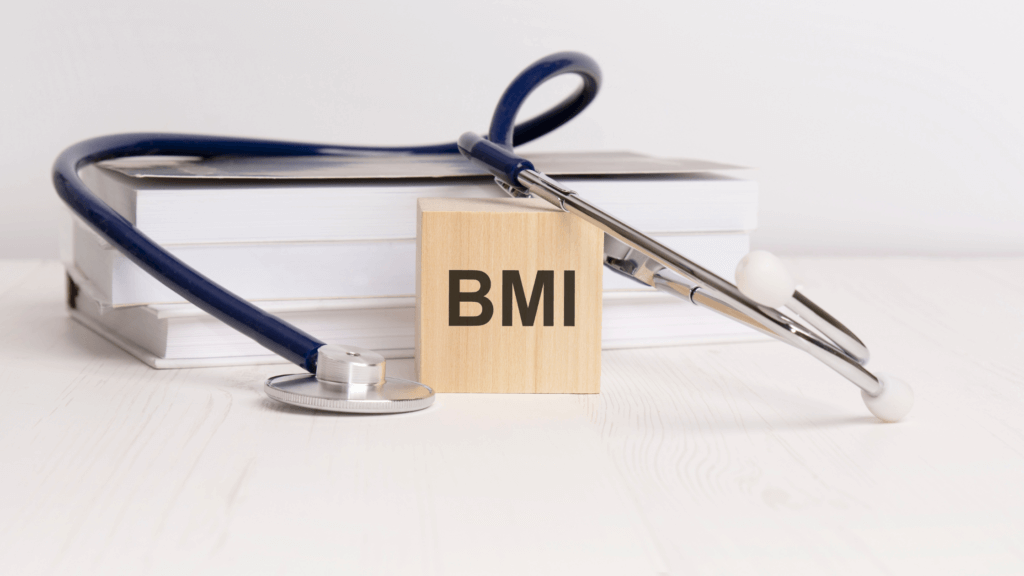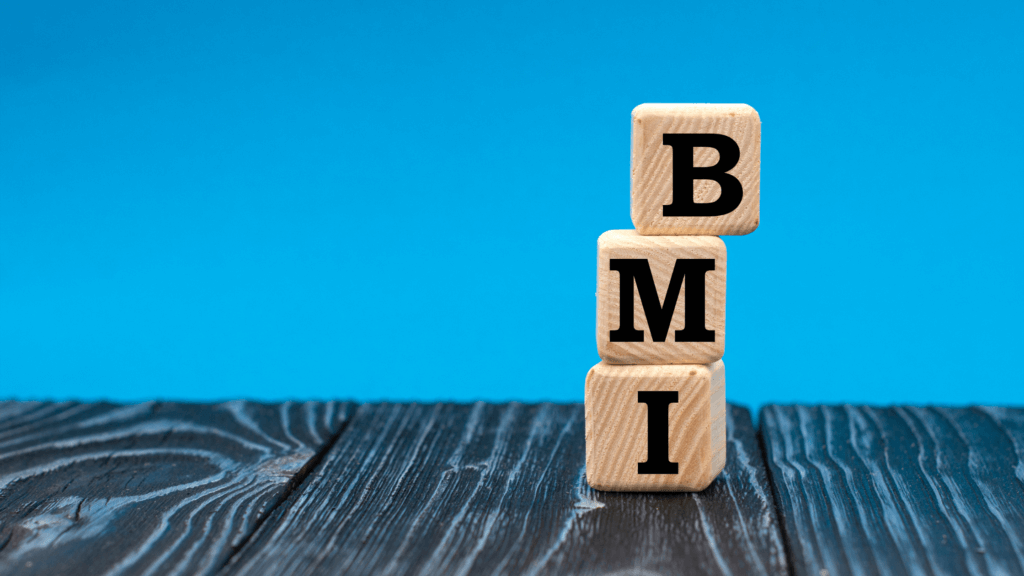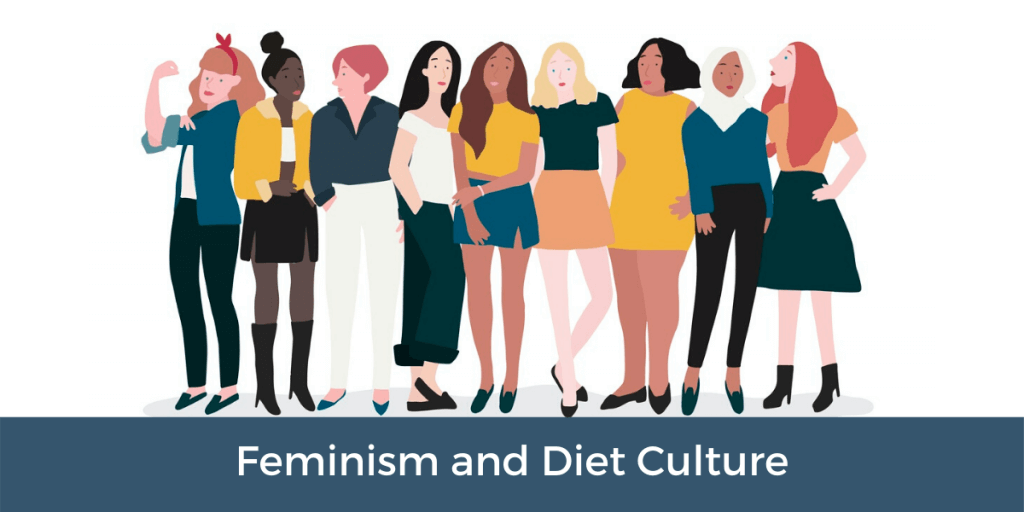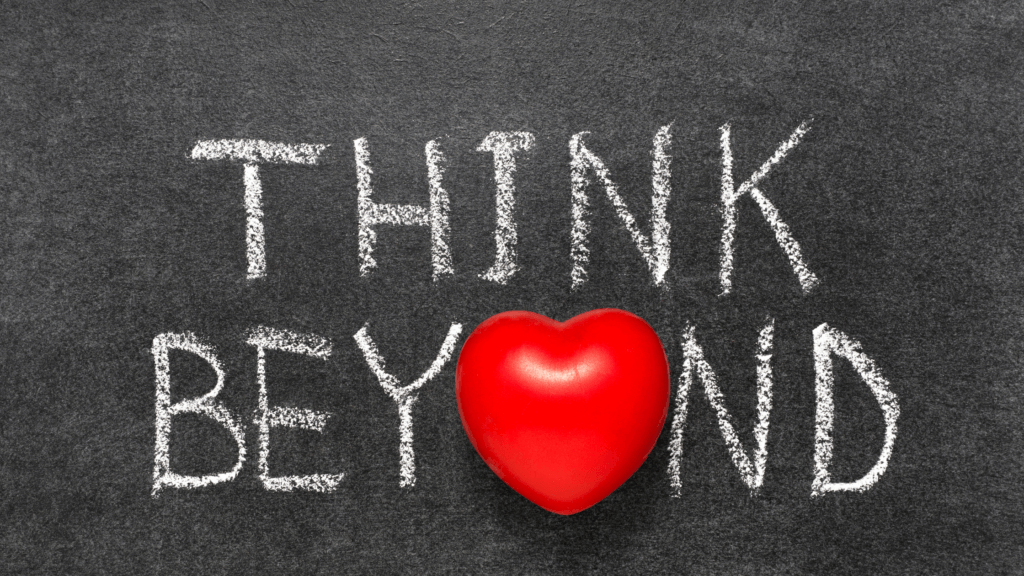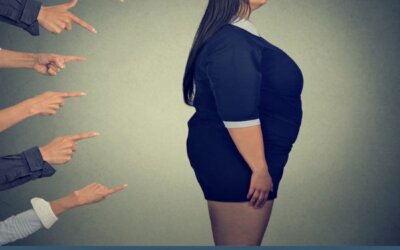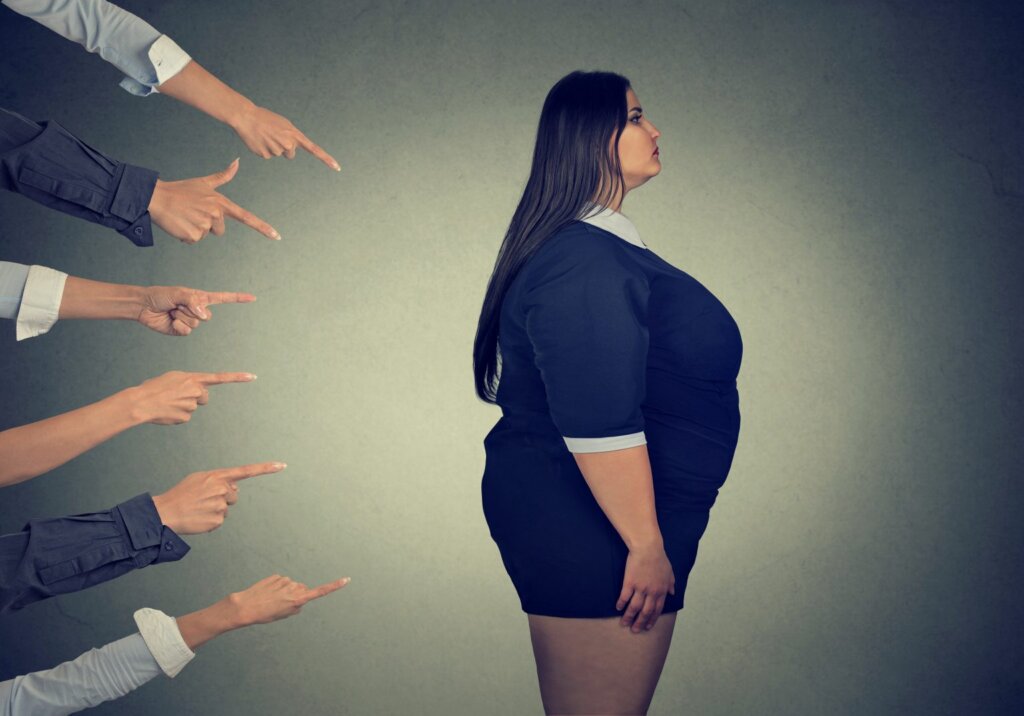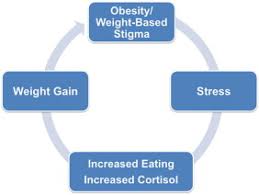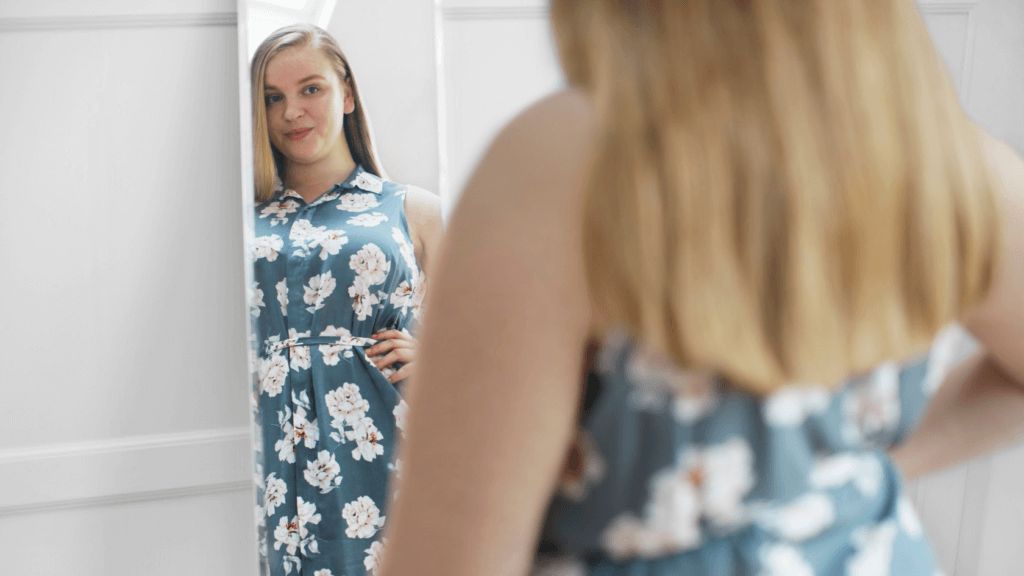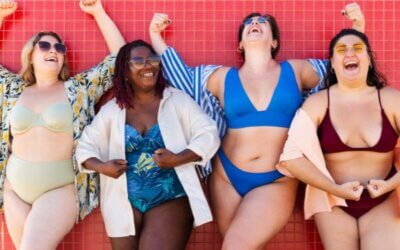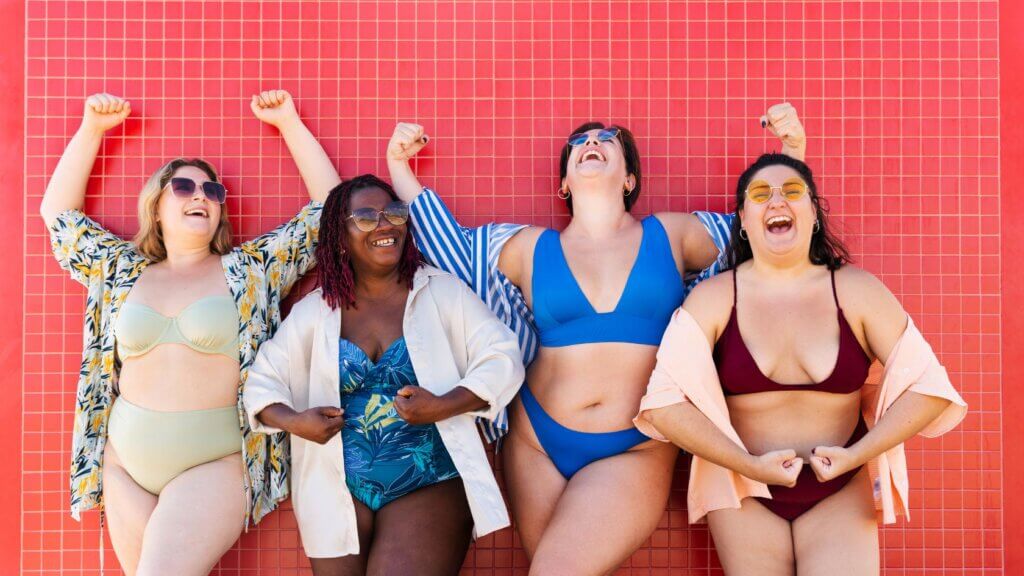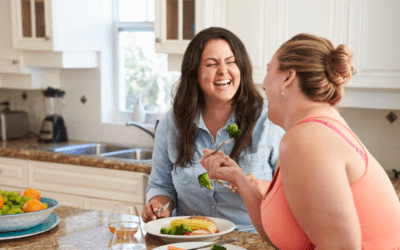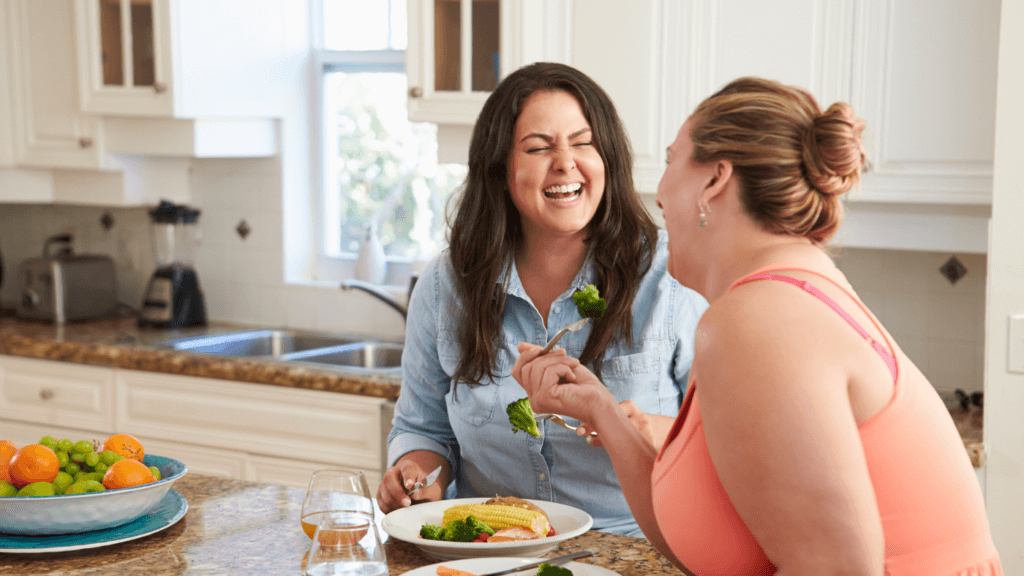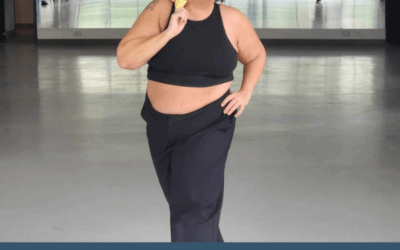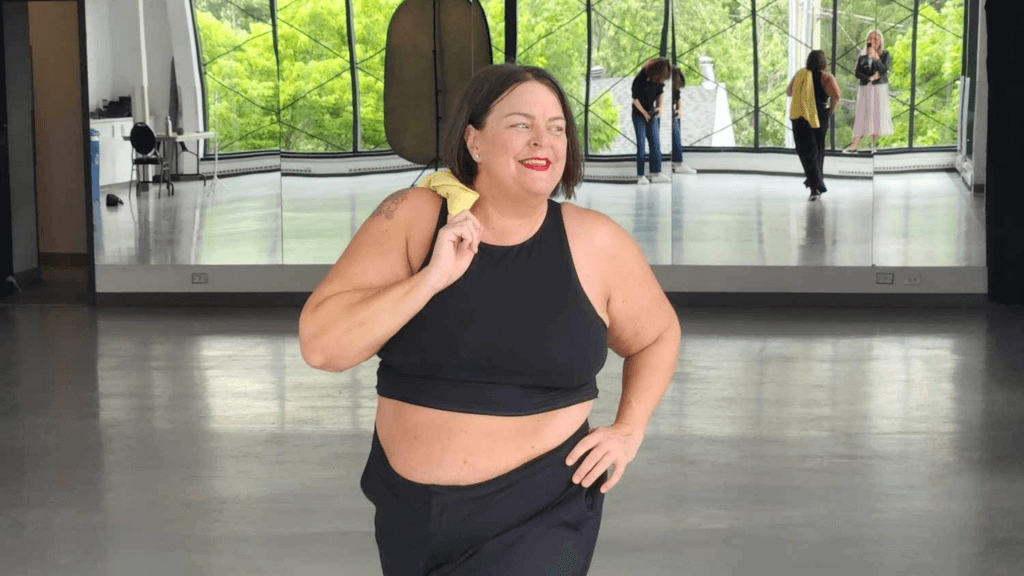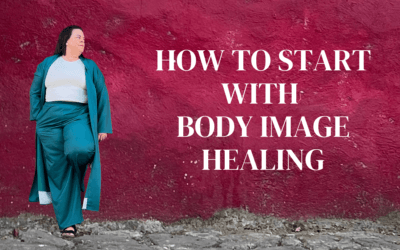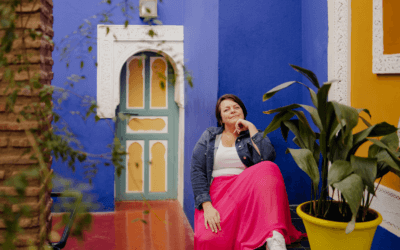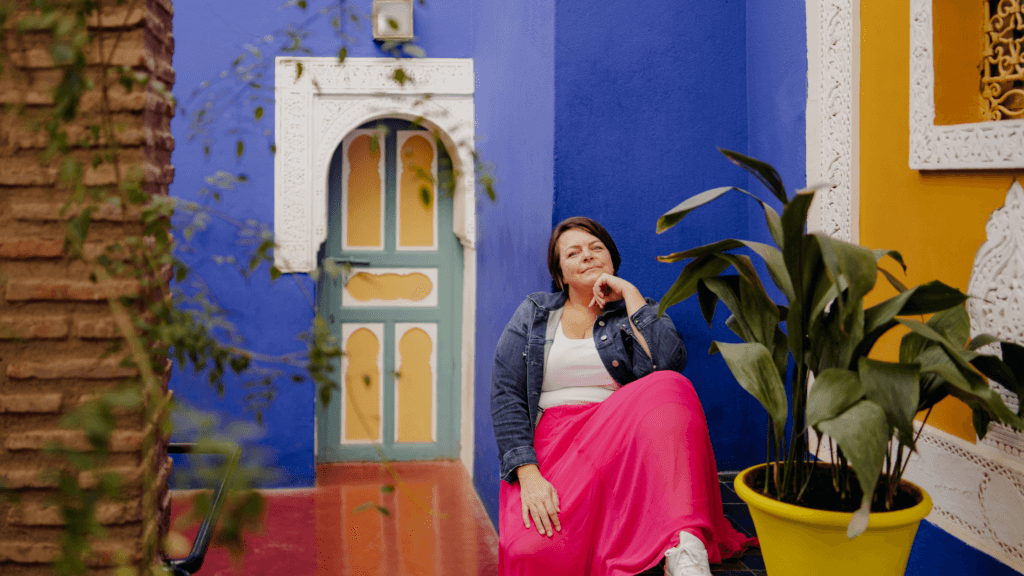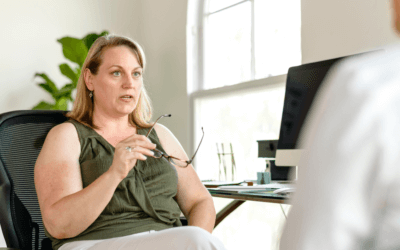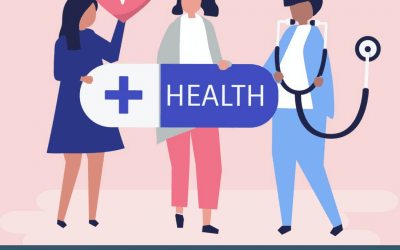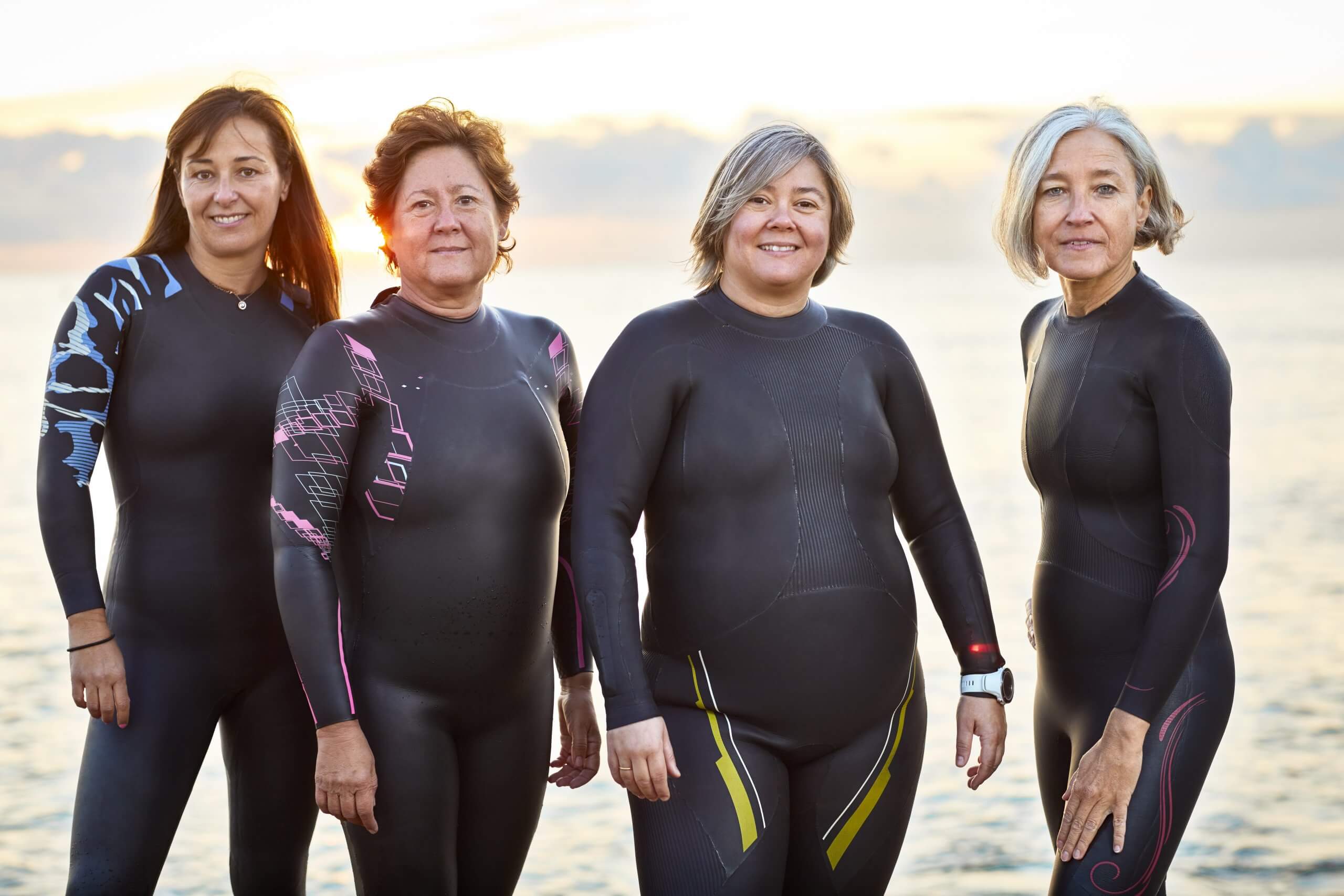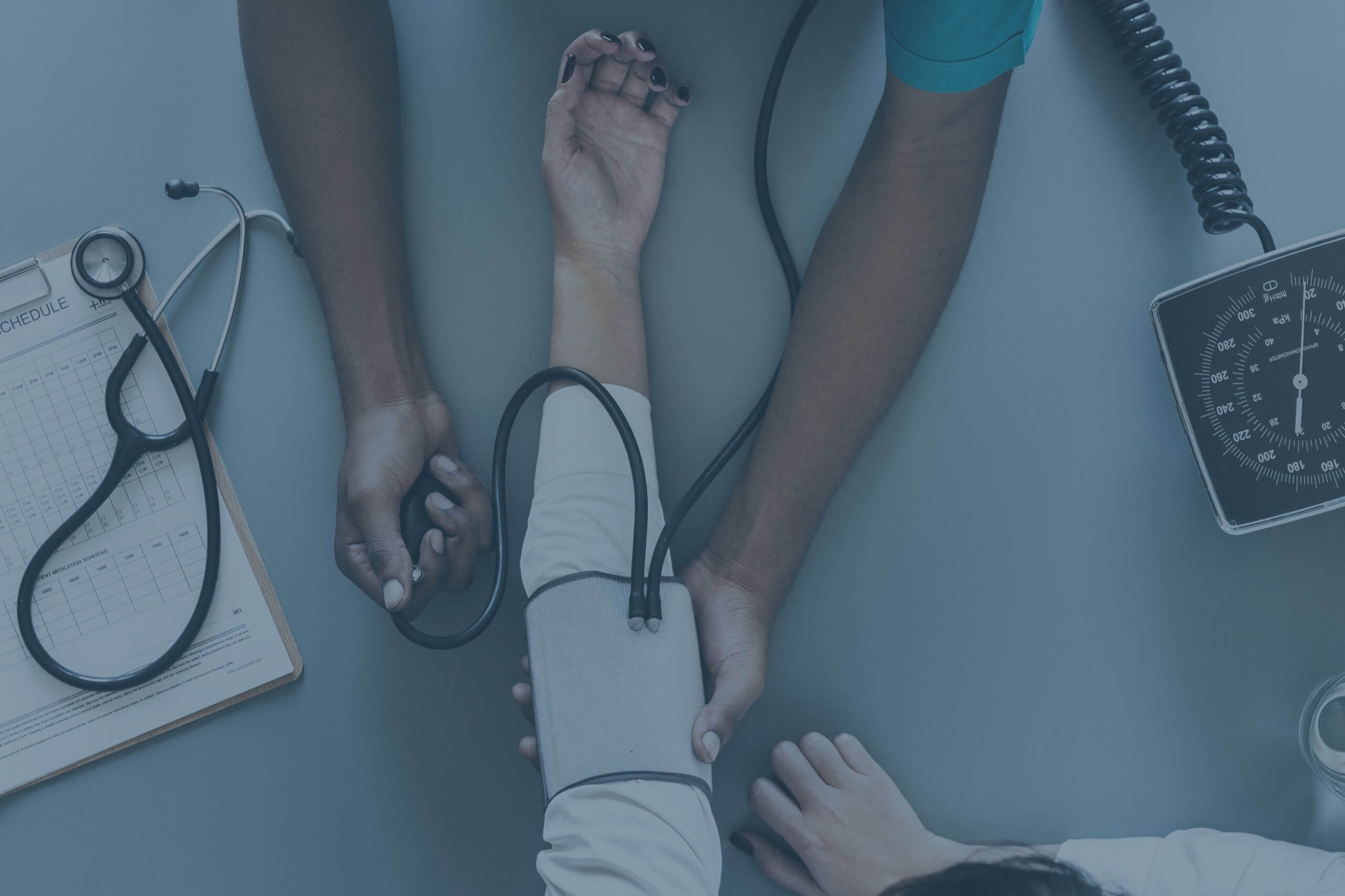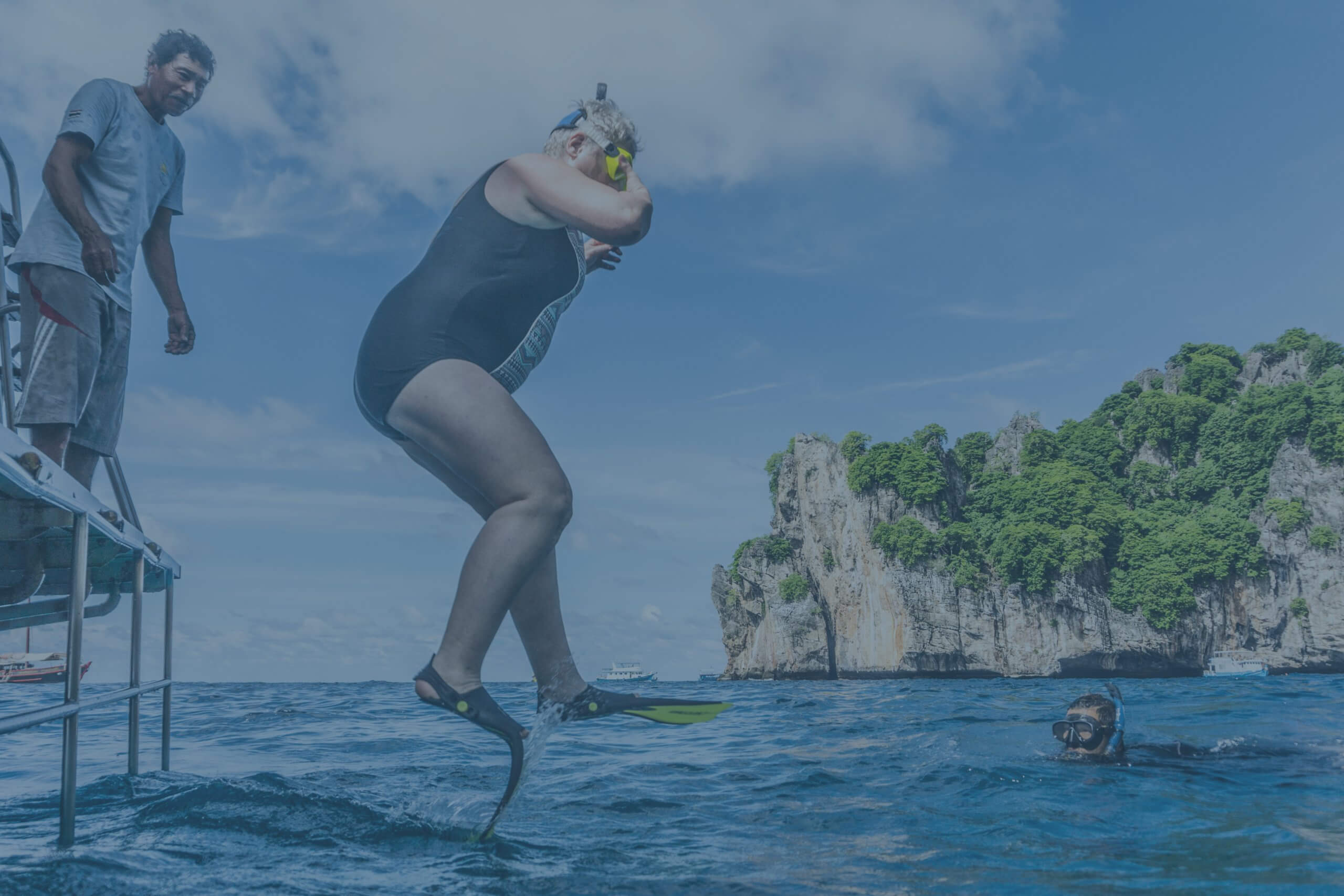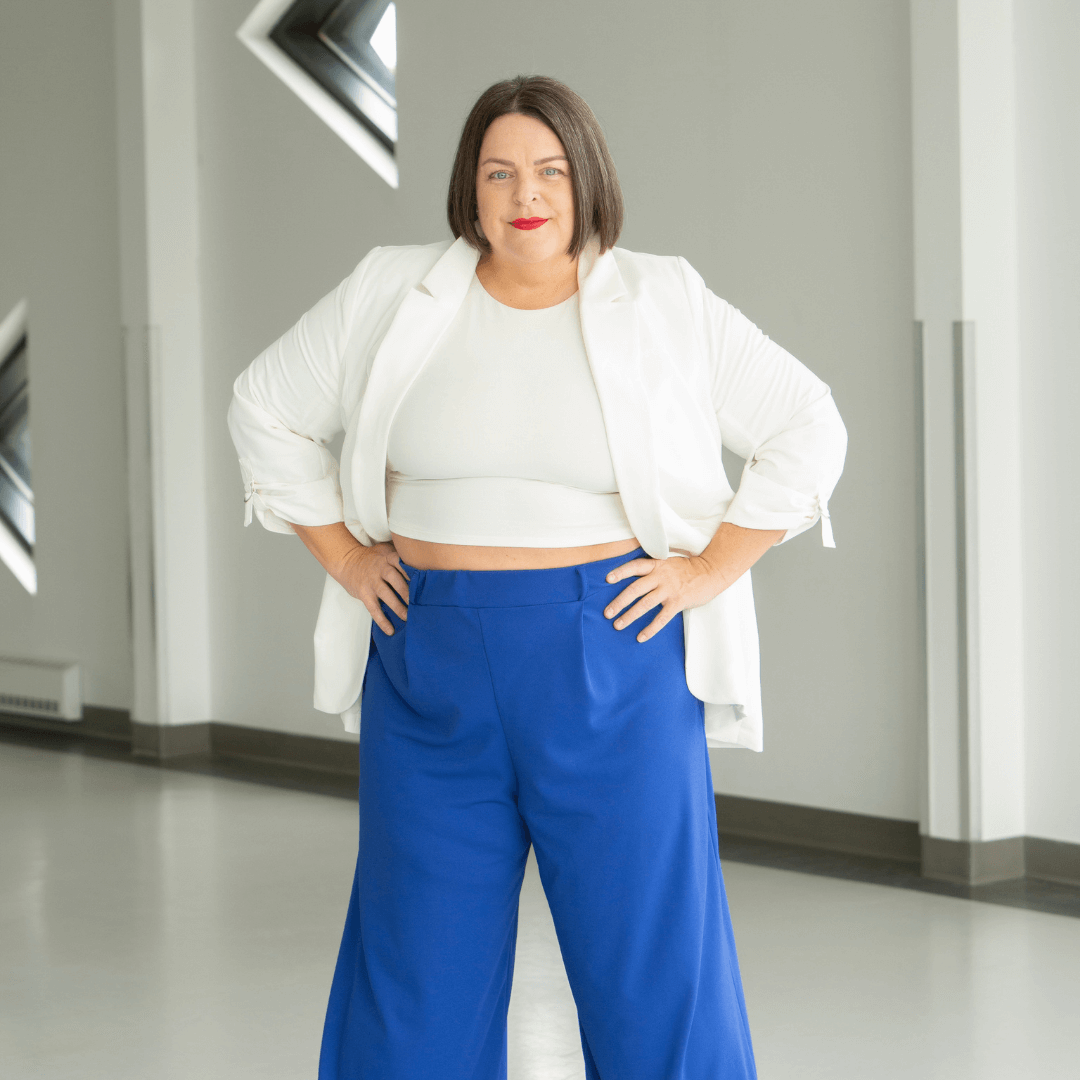

Welcome to
Beyond the Food Blog
A catalog of evidence-based articles written by Stephanie Dodier non-diet nutritionist, educator, and feminist business leader on all topics supporting the non-diet approach that will challenge everything you’ve been taught about food, health, and coaching.
Welcome to
Beyond the Food Blog
A catalog of evidence-based articles written by Stephanie Dodier Clinical Nutritionist on all topics supporting the non-diet approach to health.
Our Most Recent Articles
BMI Health and the Anti-Diet Health Approach
BMI, Health and the Anti-Diet Health Approach: A New Perspective
Are you tired of the endless cycle of dieting and weight obsession? You’re not alone. As a society, we’ve been conditioned to believe that our health is directly tied to our weight and Body Mass Index (BMI). But what if I told you that this approach is not only unsustainable but potentially harmful?
The Tyranny of Diet Culture
Let’s start with some eye-opening statistics:
– By age 45, the average woman has tried 61 different diets.
– Women spend an equivalent of 31 years obsessing about changing their bodies.
– Only 4% of women in first-world countries consider themselves ‘beautiful.’
– 75% of women report attempting to control their weight through dieting.
– 95% of diets fail, with dieters regaining lost weight within 1-5 years.
Perhaps most alarmingly, almost half of American girls between 1st and 3rd grade want to be thinner. 50% of 9-10-year-old girls are already dieting.
These facts paint a clear picture: we’re not free. We’re oppressed by diet culture.
The Historical Context of BMI and Health
You might assume that the link between health and weight has always existed. But the truth is quite different.
The Origins of BMI
The BMI was invented in the early 1800s by a mathematician. Surprisingly, it had nothing to do with health. It was created to determine the “ideal” body for a white European elite male of that era.
Read more about the history of BMI here.
The Shift in Medical Advice
Up until the 1930s, weight loss was never part of physician advice or public health guidelines. The association between weight loss and health only emerged in the post-World War II era. This shift coincided with the rise of diet culture and the idealization of thin bodies.
It’s crucial to understand that health and weight loss became associated not because of scientific evidence, but because culture had created a desire for thinness and a disdain for larger bodies.
BMI: A Flawed Measure of Health
Despite its widespread use, the BMI is a poor indicator of overall health.
The UCLA Study
A 2016 study by researchers at UCLA examined 40,420 American adults, assessing their health through six accepted metrics:
1. Blood pressure
2. Triglycerides
3. Cholesterol
4. Glucose
5. Insulin resistance
6. C-reactive protein (inflammation marker)
The results were surprising:
– 47% of people classified as overweight by BMI were healthy.
– 29% of those qualified as obese were healthy.
– 31% of normal-weight people were unhealthy.
The researchers concluded: “Policymakers should consider the unintended consequences of relying solely on BMI, and researchers should seek to improve diagnostic tools related to weight and cardiometabolic health.”
BMI, Health and the Anti-Diet Health Approach: The Truth About Our Desire to Be Thin
Our societal obsession with thinness isn’t rooted in health outcomes. Instead, it’s deeply intertwined with sexism and racism.
As Sabrina Strings, Ph.D., author of “Fearing the Black Body,” explains, two critical historical developments contributed to the fetishization of thinness:
1. The transatlantic slave trade
2. The spread of Protestantism
In the United States, fatness became stigmatized as both “black” and “sinful.” Slenderness served as a marker of moral, racial, and national superiority.
Read more about Feminism and Diet Culture here
The Evolution of Beauty Standards and Female Oppression
Throughout history, changing beauty ideals have been used as a tool to keep women focused on their bodies and away from pursuing power.
– 1890s: The Gibson Girl ideal emerged as women began to demand more power.
– 1920s: The Flapper Girl coincided with women’s fight for political power and the right to vote.
– 1970s: Twiggy’s ultra-thin look appeared as women demanded equal work and equal pay.
As Naomi Wolf states in “The Beauty Myth”: “A cultural fixation on female thinness is not an obsession about female beauty but an obsession about female obedience… Dieting is the most potent political sedative in women’s history; a quietly mad population is a tractable one.”
The Solution: Health Beyond Dieting
As you become more educated about the non-diet approach to health, you must become comfortable with the fact that health isn’t measurable in one gold standard. It’s time to embrace a new approach to health—one that doesn’t revolve around weight loss or BMI.
The Weight-Neutral Approach to Health
A weight-neutral approach recognizes that health status can’t be determined solely by weight. It acknowledges that weight is influenced by complex factors, many of which are difficult or impossible to change.
This approach focuses on factors within your control:
– Thoughts
– Emotions
– Behaviors
By addressing these elements, you can improve your well-being and health, regardless of your weight.
The Four Bodies of Health
Humans are more than just physical bodies needing nutrition. We are composed of four interconnected bodies:
1. Emotional body: Needs emotional wellness
2. Mental body: Requires mental balance
3. Spiritual body: Craves connection and faith
4. Physical body: Needs proper nutrition and movement
True health is the sum of all four bodies’ well-being.
Embracing the Anti-Diet Health Approach
Transitioning to an anti-diet approach can be scary for both professionals and individuals. But it’s a crucial step towards true health and well-being.
If you’re ready to explore this approach further, I’d like to invite you to a training I delivered a few months ago, “How to coach weight-neutral health.” This is how we approach health within the Going Beyond the Food Method™️.
I have also written an in-depth article on various tactics to support your Health Beyond Dieting; you can read here.
Conclusion: BMI, Health and the Anti-Diet Health Approach
It’s time to move beyond BMI and weight-centric approaches to health. By embracing a weight-neutral, holistic view of well-being, we can break free from the cycle of dieting and truly thrive.
Remember, your worth is not determined by your weight or your BMI. You are so much more than a number on a scale. It’s time to reclaim your health, your happiness, and your power.
Are you ready to start your journey towards true health beyond dieting?
You can access all of our services on our work with us page. We have a number of programs and service levels enabling us to serve most women:
Free Resources and Masterclasses: Get started and get to know us better!
Private coaching with Stephanie and her team Stephanie and her team of Certified Non-Diet Coaches are waiting to support you in a one-to-one setting with an individualized plan.
Non-Diet Coaching Certification for professionals ready to integrate the Going Beyond The Food Method™️ in their practice and for women wanting to become Certified Coach and build a business coaching other women beyond the food.
Weight Stigma Is The Real Problem
In the world of health and nutrition, many professionals focus on diet plans, exercise regimens, and the number on the scale. However, as advocates of the non-diet approach, we understand that there’s a more insidious issue that deserves our attention: weight stigma. The real culprit behind disordered eating behaviors, restrictive eating, and diet cycling isn’t a lack of nutritional knowledge; it’s weight stigma. As health professionals, it’s crucial to understand that weight stigma, not weight itself, is often the root cause of many health issues we encounter in our practices. Let’s explore why weight stigma is the real problem and how we can address it through a non-diet lens.
What Is Weight Stigma?
Weight stigma, also known as weight bias, sizism, or fatphobia, refers to negative attitudes and beliefs about people because of their weight. It’s the labeling of individuals with stereotypes based on their body size. Unfortunately, there’s a common misconception that weight stigma (or fat-shaming) will motivate people to change their behaviors. However, research clearly shows this isn’t true.
Types of Weight Bias
Weight bias can manifest in two primary forms:
1. Explicit or conscious bias: When a person recognizes they have negative attitudes towards people living with obesity.
2. Implicit or unconscious bias: When a person is unaware of their attitudes but treats or talks about a person living with obesity differently than someone with a lower body weight.
The Scope of the Weight Stigma Problem
Weight stigma is more prevalent than you might think. Over 40% of U.S. adults, across various body sizes, report experiencing weight stigma at some point in their lives. Globally, the numbers are even higher. A 2018 World Obesity Federation poll found that 62% of UK residents believed overweight individuals are likely to face discrimination, surpassing other forms of bias.
Where Does Weight Stigma Occur?
Weight stigma is deeply embedded in our society, making it challenging to avoid. It’s prevalent in:
– Media
– Social situations
– Schools and colleges
– Workplaces
– Healthcare settings
A study involving over 2,400 American women found that weight stigma was experienced from various sources:
– 72% from family
– 64% from classmates
– 60% from friends
– 54% from colleagues
– 43% from employers
– 32% from teachers
– 23% from authority figures like police
The Impact of Weight Stigma on Health
Contrary to popular belief, stigmatizing attitudes hinder rather than promote better health outcomes. The effects of weight stigma are far-reaching and significant.
Mental Health Impacts
Research demonstrates that weight stigma negatively impacts mental well-being, leading to:
– Lower self-esteem
– Depression
– Anxiety
– Poor body image
– Higher likelihood of substance abuse
Physical Health Impacts
Weight stigma also affects physical health, correlating with:
– Elevated blood pressure
– Increased levels of C-reactive protein
– Higher cortisol levels
– Increased glycated hemoglobin (HbA1c)
– Higher oxidative stress
Importantly, one study found that individuals who experience weight stigma face a 60% higher risk of premature death, regardless of their BMI.
The Stress Connection
The Cyclic Obesity Weight-Based Stigma (COBWEBS) model suggests that weight stigma induces stress, which raises cortisol levels, increases eating, and ultimately leads to weight gain and obesity. This creates a vicious cycle that’s difficult to break.
Weight Stigma in Healthcare Settings
As health professionals, it’s crucial to recognize that weight stigma is prevalent even in healthcare settings. Research shows that negative attitudes and stereotypes toward those living in larger bodies have been observed among various professionals, including:
– Doctors
– Nurses
– Dietitians
– Psychologists
– Gynecologists
– Eating disorder specialists
– Bariatric care professionals
Breaking the Cycle: Solutions to Weight Stigma
As health professionals, we have a responsibility to end the cycle of discrimination. Here are some steps we can take:
1. Investigate your own weight bias: Take the Harvard Implicit Association Test to uncover your own biases.
2. Reflect on your attitudes and beliefs: Examine your own thoughts and behaviors regarding weight.
3. Enhance your understanding: Learn about the complex interplay of genetic, biological, social, and environmental factors that influence body weight.
4. Develop empathy: Gain insight into the experience of weight stigma from the perspective of patients.
5. Adopt people-first language: Refer to someone as a “person living with obesity” instead of an “obese person.”
6. Speak up: Challenge negative comments about weight or body size when you hear them.
7. Be mindful: Consider how you discuss weight at all times, not just with clients or patients.
The Power of the Non-Diet Approach
As women health practitioners, we have the power to impact thousands of other women. By embracing a non-diet approach, we can lead a grassroots movement to change the world for future generations of women.
If you’re new to the non-diet approach and need support as a professional, consider joining The Non-Diet Coaching Certification. This program helps you perfect your professional skills and build a profitable non-diet business.
Remember, stopping dieting is a revolutionary act. As health professionals, we have the power to change the narrative around weight and health. Let’s work together to create a world free from weight stigma, where all bodies are respected and valued.
Next Steps
You can access all of our services on our work with us page. We have a number of programs and service levels enabling us to serve most women:
Free Resources and Masterclasses: Get started and get to know us better!
Private coaching with Stephanie and her team Stephanie and her team of Certified Non-Diet Coaches are waiting to support you in a one-to-one setting with an individualized plan.
Non-Diet Coaching Certification for professionals ready to integrate the Going Beyond The Food Method™️ in their practice and for women wanting to become Certified Coach and build a business coaching other women beyond the food.
The #1 Body Image Coaching Question
As a body image coach, I’ve discovered a powerful question that can completely transform how women perceive and relate to their bodies. This simple yet profound inquiry has the potential to kickstart a journey of self-discovery and healing. So, what is this game-changing body image coaching question? Let’s dive in and explore its impact.
The #1 Body Image Coaching Question: “Why Do You Have a Body?“
This question often leaves my clients speechless. It’s not something most women have ever considered before, and that’s precisely why it’s so powerful. When I pose this question in my body image course, I allow the silence to linger, giving my clients the space to reflect deeply.
The Power of Reflection
The most common response I hear from my body image clients is, “I’ve never thought about that before.” And that’s exactly the point. This body image coaching question opens up a world of possibilities and new perspectives. It challenges the deeply ingrained beliefs we’ve absorbed from society about our bodies’ purpose and value.
Unpacking Socialization and Belief Systems
By pondering why we have a body, we begin to unravel the complex web of socialization and belief systems that have shaped our body image. This question allows my coaching clients to:
1. Examine our unconscious beliefs about our bodies
2. Identify the sources of these beliefs (media, family, culture)
3. Recognize how these beliefs impact our feelings and behaviors
Changing Thoughts to Change Feelings
Understanding the connection between our thoughts and feelings about our bodies is crucial. When we realize that our body image is largely a product of our thinking, we gain the power to change it. By shifting our perspective on why we have a body, we can transform how we feel about it.
The Myth of Needing to Love Your Body
One of the most liberating realizations that comes from this body image coaching question is that women don’t need to love their bodies. This might sound counterintuitive, especially given the popular “body positivity” movement, but hear me out.
Breaking Free from Unrealistic Expectations
The pressure to love every aspect of our bodies can be overwhelming and, frankly, unrealistic. It’s okay not to love everything about your body all the time. What’s more important is developing a neutral, respectful relationship with your body.
The True Purpose of Your Body
So, if our bodies aren’t here to be loved or admired, what is their purpose? The answer is beautifully simple:
Your Body is a Vehicle for Experiencing Life
Your body allows you to:
- Move through the world
- Eat and drink
- Feel emotions
- Think and create
- Connect with others
- Explore and adventure
In essence, your body is the incredible vessel through which you experience all that life has to offer.
The Ethics of Body Image Coaching
As a body image coach, I believe it’s crucial to approach this work ethically and responsibly. Here’s why I advocate for a different approach:
Moving Beyond Body Love to Body Neutrality
Rather than pushing women to love their bodies, which can feel forced and inauthentic, my approach is body neutrality. This approach:
- Recognizes that it’s normal to have fluctuating feelings about your body
- Separates self-worth from appearance
- Focuses on accepting and respecting your body as it is
Challenging Patriarchy and Diet Culture
Body neutrality is a powerful tool for liberating women from the oppressive expectations of patriarchy and diet culture. It helps us recognize and challenge the belief that our bodies’ primary purpose is to be pleasing to others or a measure of our worth.
Reinventing Body Image Coaching
It’s time for a revolution in how we approach body image coaching. Here’s what I propose:
1. Embodiment over Intellectualization: We need to move beyond just talking about body image and start living it.
2. Leading by Example: As coaches, we must embody body neutrality in our own lives.
3. Inclusivity: Recognize that feeling “good enough” is possible for all body sizes, ages, and abilities.
Embracing a New Perspective
The #1 body image coaching question – “Why do you have a body?” – has the power to shift your entire perspective on body image. By recognizing that your body’s purpose is to experience life, not to be loved or admired, you can free yourself from the constraints of societal expectations and diet culture.
Remember, you don’t need to love your body to respect it and treat it well. Body neutrality offers a path to peace with your body, allowing you to focus on all the amazing things it enables you to do and experience.
Are you ready to explore this transformative question and begin your journey towards body neutrality? Your body – and your life – are waiting for you to embrace this new perspective.
Let me teach how to coach body image
You can access all of our services on our work with us page. We have a number of programs and service levels enabling us to serve most women:
The Body Image Coaching Accelerator: A body image coaching mentorship delivered live a few times a year. Find out when the next live event is happening.
Free Resources and Masterclasses: We have a few short classes on how to coach body image and desire to lose weight available to you.
Private coaching with Stephanie and her team Stephanie and her team of Certified Non-Diet Coaches are waiting to support you in a one-to-one setting with an individualized plan.
Non-Diet Coaching Certification for professionals ready to integrate the Going Beyond The Food Method™️ in their practice and for women wanting to become Certified Coach and build a business coaching other women beyond the food.
Body Image Healing Is Key to Improving Health-Promoting Behaviors
Body Image Healing Is Key to Improving Health Promoting Behaviors
As a woman on a journey to better health, you’ve likely encountered countless diet plans and weight loss strategies. But what if I told you that the key to truly improving your health-promoting behaviors lies not in restrictive diets, but in healing your relationship with your body? Let’s explore why body image healing is crucial for your overall well-being and how it can transform your approach to health.
The Startling Truth About Body Image
Before we dive deeper, let’s look at some eye-opening statistics:
– Only 4% of women describe themselves as beautiful
– 96% of women have negative thoughts about their bodies
– 90% of health coaching or nutrition clients initially seek help to lose weight
These numbers paint a clear picture: the vast majority of women struggle with body image issues. But what impact does this have on our health?
How Body Image Affects Health Behaviors
The Weight-Centric Approach vs. Body Image Healing
Traditionally, the health and fitness industry has taken a weight-centric approach aka diet culture, focusing primarily on weight loss as the key to better health. This approach often validates the belief that our bodies need to change to be acceptable. However, this mindset can be counterproductive to our overall well-being.
Body image healing, on the other hand, shifts the focus from changing our bodies to accepting and caring for them as they are. This weight-neutral paradigm shift can have a profound impact on our health behaviors.
The Research Behind Body Image and Health
A 2013 study revealed a fascinating insight: there’s no direct link between body weight and self-esteem. However, the study did find a strong connection between how people feel about themselves and the healthy activities they engage in.
What does this mean for you? Simply put, the better you feel about your body, the more likely you are to engage in health-promoting behaviors like eating nutritious foods and staying active. It’s a positive cycle that starts with body image healing.
Why We Can’t Hate Ourselves to Health
You’ve probably heard the saying, “You can’t hate yourself into a version of yourself you love.” This applies to health as well. Recent research has shown that body dissatisfaction thoughts are linked to inflammation in the body. This underscores the physical impact of negative body image on our health.
When we’re constantly at war with our bodies, we’re less likely to engage in behaviors that truly nourish and care for them. Body image healing is about making peace with your body, which in turn motivates you to treat it with kindness and respect.
The Non-Diet Approach to Health
So, if dieting and weight focus aren’t the answer, what is? Enter the non-diet approach. This weight-neutral strategy focuses on health behaviors rather than weight loss. The goal is to help you take charge of factors within your control, such as your thoughts and behaviors, which ultimately lead to improved well-being regardless of weight.
Key Principles of the Non-Diet Approach:
1. Focus on health-promoting behaviors, not weight
2. Cultivate a positive relationship with food
3. Practice intuitive eating
4. Engage in joyful movement
5. Prioritize self-care and stress management
By shifting the focus from weight to overall well-being, the non-diet approach naturally aligns with body image healing.
Steps Towards Body Image Healing
Now that we understand the importance of body image healing, let’s explore some practical steps you can take:
1. Assess Your Current Body Image
The first step in any healing journey is awareness. Take some time to reflect on your current relationship with your body. What thoughts and feelings come up when you think about your appearance? You can do this by downloading our Non-Diet Coaching Intake Forms.
Once you have established your own body image score and established if improvement is required, you have two choices: Seek guidance and expert body image coaching or self-coach your own body image.
2. Challenge Negative Self-Talk
Once you’re aware of your thought patterns, start challenging negative self-talk. When you catch yourself thinking critically about your body, pause and ask yourself if you’d say the same thing to a friend.
3. Practice Self-Compassion
Treat yourself with the same kindness and understanding you’d offer to a loved one. Self-compassion is a powerful tool in body image healing.
4. Focus on What Your Body Can Do
Instead of fixating on how your body looks, appreciate what it can do. Whether it’s carrying you through your day, allowing you to hug loved ones, or healing from illness, your body is constantly working for you.
5. Surround Yourself with Positive Influences
Curate your social media feeds, friendships, and environments to support a positive body image. Unfollow accounts that make you feel bad about yourself and seek out body-neutral influences.
The Ripple Effect of Body Image Healing
As you embark on your body image healing journey, you’ll likely notice positive changes extending beyond your relationship with your body. You may find yourself:
– Enjoying food without guilt
– Moving your body for pleasure rather than punishment
– Engaging in self-care more consistently
– Feeling more confident in various aspects of your life
Remember, body image healing is a journey, not a destination. Be patient with yourself and celebrate small victories along the way.
Conclusion: Embracing Body Image Healing for Better Health
In a world that often equates health with a certain body size or shape, it’s revolutionary to prioritize body image healing. By making peace with your body, you’re not only improving your mental well-being but also setting the stage for long-lasting, positive health behaviors.
As you move forward, remember that your worth is not determined by your appearance or your weight. You deserve to feel comfortable and confident in your body, exactly as it is right now. By embracing body image healing, you’re taking a powerful step towards true health and well-being.
Ready to start to integrating body image coaching in your health coaching?
You can access all of our services on our work with us page. We have a number of programs and service levels enabling us to serve most women:
Free Resources and Masterclasses: Get started and get to know us better!
Private coaching with Stephanie and her team Stephanie and her team of Certified Non-Diet Coaches are waiting to support you in a one-to-one setting with an individualized plan.
Non-Diet Coaching Certification for professionals ready to integrate the Going Beyond The Food Method™️ in their practice and for women wanting to become Certified Coach and build a business coaching other women beyond the food.
7 Ways to Eat Healthy Simply Without Diet Culture and Restriction
7 Ways to Eat Healthy Simply Without Diet Culture and Restriction
Are you tired of feeling trapped by restrictive diets and confusing wellness trends? As a clinical nutritionist and certified intuitive eating counselor, I’m here to show you that it’s possible to eat healthy without buying into diet culture or imposing harsh restrictions on yourself. In this post, we’ll explore seven empowering ways to nourish your body and mind, free from the constraints of traditional diet mentality.
The Problem with Diet Culture and Restrictive Eating
Before we dive into our healthy eating strategies, it’s crucial to understand why traditional diets often fail us. Diet culture promotes a one-size-fits-all approach to nutrition, often encouraging restrictive eating patterns that are unsustainable and potentially harmful. These approaches can lead to:
– Disordered eating behaviors
– A negative relationship with food
– Ignoring your body’s natural hunger and fullness cues
– Feelings of guilt and shame around eating
Let’s break free from these harmful patterns and embrace a more intuitive, sustainable approach to healthy eating.
1. Build a Healthy Relationship with Food
The foundation of truly healthy eating lies in developing a positive relationship with food. This means:
– Stopping the use of food as a weapon to manipulate your body
– Letting go of the idea that food is solely a tool to change your appearance
– Learning to trust and respect your body’s signals
By shifting your mindset, you’ll be able to make food choices from a place of self-care rather than self-punishment.
2. Honor Your Hunger: Eat Enough Food
Many women have a distorted view of what constitutes “enough” food.
To eat healthy without restriction, it’s essential to tune into your body’s natural hunger and fullness cues. This is a fundamental principle of intuitive eating, which encourages you to honor your body’s needs rather than following external rules.
3. Seek Satisfaction and Pleasure from Food
Here’s a concept that might feel revolutionary: it’s okay to enjoy your food! In fact, finding pleasure and satisfaction in eating is crucial for sustainable healthy eating. Try:
– Allowing yourself to eat foods you genuinely enjoy
– Being present and mindful during meals
– Savoring the flavors, textures, and aromas of your food
Remember, food is not just fuel – it’s also a source of comfort, celebration, and connection with others.
Think of steps 1-3 as your high school diploma in healthy eating of eating and 4-7 as your college degree.
4. Balance Your Macronutrients
Once you’ve mastered the basics of honoring your hunger and finding pleasure in food, you can start focusing on nutritional balance. Aim to include a mix of:
– Proteins
– Healthy fats
– Complex carbohydrates
The key is to approach this balance without guilt or rigid rules. Some meals might be perfectly balanced, while others might not – and that’s okay!
5. Embrace Imperfection in Your Eating Habits
Perfection is the enemy of progress, especially when it comes to healthy eating. Give yourself permission to be imperfect by:
– Letting go of “good” and “bad” food labels
– Allowing flexibility in your eating patterns
– Recognizing that one meal or day of eating doesn’t define your overall health
Remember, consistent habits over time are far more important than striving for perfection at every meal.
6. Diversify Your Diet with a Variety of Foods
Eating a wide range of foods not only ensures you’re getting a broad spectrum of nutrients but also keeps meals interesting and satisfying. Focus on:
– Incorporating a rainbow of fruits and vegetables
– Trying new whole grains and protein sources
– Experimenting with different herbs and spices
By embracing variety, you’ll naturally create a more balanced and nutrient-rich diet without feeling restricted.
7. Individualize Your Approach: Listen to Your Body
The ultimate level of healthy eating without diet culture is learning to truly individualize your food choices based on your body’s unique needs. This involves:
– Paying attention to how different foods make you feel
– Adjusting your eating patterns based on your body’s responses
– Trusting that you know your body better than any external “expert”
This step requires practice and patience, but it’s the key to developing a sustainable, personalized approach to nutrition that serves you for life.
Putting It All Together: Your Path to Intuitive, Healthy Eating
By following these seven steps, you can create a healthy eating pattern that’s free from the constraints of diet culture and unnecessary restrictions. Remember, this journey is about progress, not perfection. It’s okay to take small steps and gradually incorporate these principles into your life.
As you move forward on this path, you’ll likely find that:
– Food becomes less of an obsession
– You’re able to eat when hungry and stop when full
– Meals become a source of enjoyment rather than stress
Remember, true health encompasses not just what you eat, but also how you think about food and your body. By rejecting diet culture and embracing intuitive, restriction-free eating, you’re taking a powerful step towards overall well-being and a more joyful relationship with food.
Are you ready to start your journey towards healthy eating without diet culture?
You can access all of our services on our work with us page. We have a number of programs and service levels enabling us to serve most women:
Free Resources and Masterclasses: Get started and get to know us better!
Private coaching with Stephanie and her team Stephanie and her team of Certified Non-Diet Coaches are waiting to support you in a one-to-one setting with an individualized plan.
Non-Diet Coaching Certification for professionals ready to integrate the Going Beyond The Food Method™️ in their practice and for women wanting to become Certified Coach and build a business coaching other women beyond the food.
3 Steps to Making Money in a Coaching Business
Are you a woman entrepreneur looking to make good money in your coaching business without compromising your values? You’re in the right place. In this post, we’ll explore three essential steps to create a thriving coaching practice that feels aligned with who you are and what you stand for.
The Truth About Making Money in Coaching
Let’s start by addressing the elephant in the room: it’s okay to want to make money. In fact, it’s more than okay—it’s necessary. We live in a capitalist society where financial stability equates to safety and a better quality of life. So, let’s normalize the desire to increase our income.
The real challenge lies not in wanting to make money, but in figuring out how to do it in a way that feels good and aligns with our values. That’s where the concept of building a *GOOD* business comes into play.
What is a GOOD Business?
A GOOD business is one that:
– Serves people with high-quality coaching
– Generates a healthy income
– Aligns with your personal and professional values
By focusing on creating a GOOD business, you can make money in a way that feels authentic and fulfilling. Let’s dive into the three crucial shifts you need to make to achieve this balance.
Shift #1: From “Earning Money” to “Making Money” Mindset
The Employee vs. Entrepreneur Mindset
Many coaches transition from traditional employment to entrepreneurship carrying an “employee mindset.” This perspective can significantly hinder your ability to create wealth in your coaching business.
Key Differences:
– Employees earn a set salary
– Entrepreneurs create their own income
To succeed as a coach, you need to cultivate an entrepreneurial mindset. This involves intentionally nurturing thoughts that generate feelings of:
– Confidence
– Courage
– Resilience
– Bravery
– Determination
These emotions are crucial when it comes to selling your services and growing your income.
Action Step:
Identify one limiting belief you have about making money as a coach. Replace it with an empowering thought that aligns with an entrepreneurial mindset.
Shift #2: From “As Long As” to “Even When” Mindset
The Danger of Conditional Thinking
Many coaches approach mindset work with an “As Long As” mentality. They’re willing to change their thoughts about money… as long as it works immediately. This conditional approach is similar to clients who are willing to try intuitive eating… as long as they don’t gain weight.
The Power of Unconditional Commitment
To truly succeed in your coaching business, you need to adopt an “Even When” mindset. This means committing to your goals and mindset work:
– Even when nobody books a consult
– Even when you’re not meeting your financial targets
– Even when you have zero clients
Action Step:
Write down three “Even When” statements that reinforce your commitment to your coaching business, regardless of immediate results.
Shift #3: Releasing the 6 or 7-Figure Business Ideal
The Parallel Between Business Revenue and Body Image
Just as many women struggle with the “thin ideal” in body image, coaches often grapple with revenue ideals in their businesses. Whether it’s the allure of a 6-figure or 7-figure business, these arbitrary benchmarks can create unnecessary pressure and shame.
The Reality Check
Consider this statistic: In 2019, 88% of women-owned businesses made less than $100,000 per year. This doesn’t mean these businesses weren’t successful or impactful. It simply highlights the need to redefine success on your own terms.
Deconditioning from Toxic Business Culture
To truly make GOOD money in your coaching business, you need to:
1. Recognize and release shame around your current revenue
2. Decondition yourself from toxic business culture that equates success with a specific income level
3. Define success based on your values and impact, not just your bank account
Action Step:
Reflect on this question: Are you subconsciously co-opting toxic business culture and taking action based on those beliefs? How can you redefine success in a way that feels authentic to you?
Embracing a New Approach to Making Money in Your Coaching Business
By implementing these three shifts, you’re setting the foundation for a coaching business that not only generates good income but also aligns with your values and brings you joy. Remember, making money doesn’t have to come with shame, guilt, or overwhelm. It’s about creating a business that serves others while honoring your worth and well-being.
Key Takeaways:
1. Develop an entrepreneurial “Making Money” mindset
2. Commit to your business “Even When” times are tough
3. Define success on your own terms, free from toxic business ideals
Are you ready to make GOOD money in your coaching business? It’s time to embrace these shifts and create a practice that feels authentic, impactful, and financially rewarding.
Remember, making good money in your coaching business is not just possible—it’s your right. By aligning your money-making strategies with your values, you’re not only setting yourself up for financial success but also creating a business that truly makes a difference in the world.
Want to transform your approach to making good money in your coaching business?
You can access all of our services on our work with us page. We have a number of programs and service levels enabling us to serve most women:
Free Resources and Masterclasses: Get started and get to know us better!
Private coaching with Stephanie and her team Stephanie and her team of Certified Non-Diet Coaches are waiting to support you in a one-to-one setting with an individualized plan.
Non-Diet Coaching Certification for professionals ready to integrate the Going Beyond The Food Method™️ in their practice and for women wanting to become a Certified Coach and build a business coaching other women beyond the food.
The Secret to Achieving a Health Goal for Women
The Secret to Achieving a Health Goal for Women
As women, we’re often bombarded with messages about self-improvement and the need to “fix” ourselves. This constant pressure can make setting and achieving health goals feel daunting, especially when we’ve been conditioned by diet culture. But what if I told you there’s a better way? A way that empowers you to set health goals without falling into the traps of diet culture and patriarchy? Let’s explore how we can revolutionize our approach to achieving goals as women.
The Diet Culture Dilemma in Goal Setting
Before we dive into the secret of achieving health goals, we need to address the elephant in the room: diet culture. Many of us have been led to believe that an anti-diet approach means abandoning all health goals. This couldn’t be further from the truth.
The real problem isn’t setting health goals; it’s how we think about them. Diet culture has infiltrated our self-concept, affecting how we approach not just food and body image, but also our careers, relationships, and yes, goal setting.
Breaking Free from the “Fix It” Mentality
Society often encourages women to exist in a perpetual state of self-improvement. We’re constantly told what’s wrong with us, with the promise that fixing these “flaws” will lead to happiness and self-confidence. This mindset teaches us to undervalue ourselves and hold ourselves back.
As a result, many women associate goals with reminders of their “not good enoughness.” We see goals as a way to fix our perceived deficiencies, avoid pain, and seek approval. Unsurprisingly, this approach feels terrible and often leads to goal avoidance.
Achieving a Goal for Women: The Liberated Goal-Setting Process
So, how can we set health goals that empower rather than diminish us? The answer lies in the Liberated Goal Setting Process. This approach combines a weight-neutral perspective on health with a fresh take on goal setting. Here are the key components:
1. Constraint: Focus on One Goal at a Time
In our fast-paced world, it’s tempting to pursue multiple goals simultaneously. However, this often leads to overwhelm and burnout. The Liberated Goal Setting Process emphasizes focusing on one goal at a time. This constraint allows you to channel your energy and attention more effectively, increasing your chances of success.
2. Clean: Embrace Imperfect Action
Many women avoid setting goals because they fear they won’t achieve them perfectly. The “clean” aspect of this process involves understanding that the point of a goal is never perfection. Instead, it’s about building the habit of taking consistent, imperfect action toward something you want to create.
3. Courting: Develop a Relationship with Your Goal
Goal-setting isn’t just about the end result; it’s about the journey. The “courting” phase involves developing a deep relationship with your goal. This means learning to trust yourself throughout the process, celebrating small wins, and using setbacks as learning opportunities.
Reframing Health Goals for Women
Now that we understand the Liberated Goal Setting Process let’s explore how to apply it specifically to health goals:
Creating Instead of Fixing
Instead of setting goals to fix perceived flaws, focus on creating something new. Ask yourself: “What do I want to create in my life?” This shift in perspective can transform goal-setting from a draining experience to an exciting opportunity for growth.
Using Goals to Expand Your Self-Concept
View your health goals as containers for acquiring new skills, habits, and ways of thinking. Each goal becomes an opportunity to expand your self-concept and challenge your limitations. As you work towards your goal, pay attention to how you’re growing and changing as a person.
Achieving a Goal for Women: Making Health Goals Safe for Women
Combining the Liberated Goal Setting Process with a weight-neutral approach to health makes setting health goals safe and empowering for women. Here’s how:
1. Choose goals that align with your values, not societal expectations.
2. Focus on behaviors and habits rather than outcomes like weight loss.
3. Celebrate non-scale victories and internal changes.
4. Practice self-compassion throughout the process.
The Power of Self-Belief in Achieving Goals
As women, we often underestimate the importance of believing in ourselves. How much time do you spend convincing yourself that you can be successful? Becoming a woman who decides what she believes in, without seeking permission from others, is a powerful step in achieving your goals.
Coaching Women to Believe in Themselves
If you’re a coach working with women, you have the opportunity to guide them in believing in themselves through their health goals. Help your clients:
1. Identify limiting beliefs that hold them back.
2. Reframe negative self-talk into empowering statements.
3. Visualize success and the person they’ll become through achieving their goals.
4. Develop resilience in the face of setbacks.
Reconciling Health Goals with the Anti-Diet Approach
For those who have embraced the anti-diet approach, it’s important to understand that setting health goals doesn’t contradict these principles. The key is in how you approach those goals:
1. Focus on adding healthy behaviors rather than restricting.
2. Set goals based on how you want to feel, not how you want to look.
3. Prioritize mental and emotional health alongside physical health.
4. Use goals as a tool for self-discovery and growth, not punishment.
Conclusion: Empowering Women Through Goal Setting
Achieving health goals as a woman doesn’t have to be a battle against yourself. By reframing how we think about goals, embracing the Liberated Goal Setting Process, and focusing on creation rather than fixing, we can transform goal-setting into an empowering and exciting journey.
Remember, the secret to achieving a health goal for women lies not in the goal itself, but in how we approach it. By believing in ourselves, embracing imperfection, and viewing goals as opportunities for growth, we can create lasting change that feels authentic and empowering.
Are you ready to revolutionize your approach to health goals? Start by choosing one area of your health you’d like to improve, and apply the principles we’ve discussed. You might be surprised at how different goal-setting can feel when you approach it from a place of self-love and curiosity rather than criticism and fear.
Let’s rewrite the narrative around women’s health goals, one empowered step at a time.
Need help learning how to achieve a health goal? Or Coach others with health?
You can access all of our services on our work with us page. We have a number of programs and service levels enabling us to serve most women:
Free Resources and Masterclasses: Play Bigger: A 4-part Masterclass series to help you learn the process of making Good Money in a way that feels damn good!
Non-Diet Coaching Certification for professionals ready to integrate the Going Beyond The Food Method™️ in their practice and for women wanting to become a Certified Coach and build a business coaching other women beyond the food.
How to Start with Body Image Healing
Are you ready to embark on a journey of body image healing? As a body image coach, I’ve guided countless women through this transformative process. Today, I’m sharing my insights on how to start with body image healing, offering a fresh perspective that goes beyond conventional wisdom. Let’s dive in and explore a path to body neutrality that can truly liberate you from the constraints of diet culture and societal pressures.
The First Step: Asking the Right Question
When it comes to body image healing, many people think it’s all about learning to love every inch of their bodies. But I’m here to challenge that notion. The first and most crucial step in this journey is to ask yourself a powerful question:
Why do you have a body?
Take a moment to sit with this question. Let it sink in. Your initial response might surprise you, and that’s okay. This simple yet profound inquiry sets the stage for a paradigm shift in how you view your body and its purpose.
Moving Beyond Traditional Body Image Coaching
In our programs, we take a unique approach to body image coaching. Instead of focusing directly on the body itself, we use the Cognitive Behavioral Model to address the root of body image issues: beliefs and thoughts. This approach allows us to go beyond the size of your pants and dive into the core of how you perceive your body’s role in your life.
The Truth About Your Body’s Purpose
Here’s a revolutionary idea that might shake up everything you’ve been taught: Your body’s purpose isn’t to be loved or beautiful. I know, this might sound counterintuitive, especially if you’ve been immersed in the world of body positivity. But hear me out.
Women weren’t given bodies to be beautiful objects or to seek constant approval and love. The truth is far more empowering:
Humans have bodies to experience life. Yes, women too.
Your body is the incredible vehicle through which you navigate this world. It allows you to:
– Move and explore
– Feel emotions
– Think and create
– Connect with others
– Laugh, cry, and express yourself
– Nourish yourself
– And so much more
Understanding this fundamental truth is the cornerstone of body image healing. It shifts the focus from how your body looks to what your body enables you to do and experience.
The Problem with “Loving Your Body”
Now, let’s address the elephant in the room. As a coach, I believe it’s unethical and even oppressive to teach women that they must love their bodies. Here’s why:
1. It sets an unrealistic expectation
2. It still places value on appearance
3. It doesn’t address the root of body image issues
Instead of striving for constant body love, which can be exhausting and often unattainable, I propose a different approach: body neutrality.
Embracing Body Neutrality
Body neutrality is the key to liberating yourself from diet culture and patriarchal beauty standards. But what exactly is it?
Body neutrality recognizes that:
– You don’t have to love every part of your body all the time
– Your worth as a person is not tied to your appearance
– Your body is a functional tool, not an ornament
The goal of body neutrality is to accept your body for what it is – nothing more, nothing less. It’s about becoming an ally to your body, respecting it for its capabilities rather than its aesthetic qualities.
Why Body Neutrality Works
Body neutrality is powerful because it:
1. Relieves the pressure to constantly feel positive about your body
2. Focuses on function over form
3. Challenges societal conditioning about women’s bodies
4. Leads to body respect, a more sustainable and empowering mindset
By adopting body neutrality, you’re actively resisting the harmful messages that patriarchy and diet culture have ingrained in us – messages that tell women their bodies exist to be pleasing, compliant, and a measure of their worth.
Practical Steps to Start Your Body Image Healing Journey
1. Reflect on the question: “Why do I have a body?”
2. Identify beliefs you hold about your body’s purpose
3. Challenge thoughts that tie your worth to your appearance
4. Practice gratitude for what your body allows you to experience
5. Focus on how your body feels rather than how it looks
6. Surround yourself with diverse body representations
7. Engage in activities that connect you with your body’s capabilities
Remember, body image healing is a process. It takes time to unlearn years of conditioning and develop a new relationship with your body. Be patient with yourself as you navigate this journey.
The Impact of Body Image Healing
As you progress in your body image healing journey, you’ll likely notice positive changes beyond just how you feel about your appearance. Many women report:
– Increased confidence in various areas of life
– More mental energy for pursuits beyond appearance
– Improved relationships with food and exercise
– Greater overall life satisfaction
These benefits underscore why starting your body image healing journey is so crucial. It’s not just about changing how you see your body – it’s about transforming how you experience life itself.
In Conclusion
Remember, your body is not an ornament – it’s the vehicle through which you experience the richness of life. By shifting your focus from appearance to experience, you open the door to true body image healing and a more fulfilling relationship with yourself.
Starting your body image healing journey might feel challenging, but it’s a path worth taking. Embrace body neutrality, challenge harmful societal messages, and reconnect with your body’s true purpose. You have the power to rewrite your body story – and it begins with asking yourself that one crucial question: “Why do I have a body?”
Do you need help getting started with healing your body image?
You can access all of our services on our work with us page. We have a number of programs and service levels enabling us to serve most women:
Free Resources and Masterclasses: Get started and get to know us better!
Private coaching with Stephanie and her team Stephanie and her team of Certified Non-Diet Coaches are waiting to support you in a one-to-one setting with an individualized plan.
Non-Diet Coaching Certification for professionals ready to integrate the Going Beyond The Food Method™️ in their practice and for women wanting to become Certified Coach and build a business coaching other women beyond the food.
Fatphobia Coaching and Gaslighting: How I Overcome Fatphobia as a Fat Woman
Fatphobia Coaching and Gaslighting: How I Overcame Fatphobia as a Fat Woman
As a fat woman, I’ve heard it all. “Just change your thoughts about the layer of fat on your body.” “Don’t worry about what other people think of you.” These well-intentioned but misguided pieces of advice aren’t coaching – they’re gaslighting. And they’re a prime example of how fatphobia permeates our society, even in spaces meant to be supportive and empowering.
Today, I want to share my personal journey of overcoming fatphobia and how I learned to navigate a world that often seems designed to make people in larger bodies feel less than. This isn’t just my story – it’s a call to action for coaches, mentors, and anyone working with fat individuals to understand the complexities of fatphobia and how to truly support their clients.
Fatphobia Coaching and Gaslighting: Understanding Fatphobia and Gaslighting
Before we dive deeper, let’s clarify what we mean by fatphobia and gaslighting. Fatphobia is the fear, stigma, and discrimination against people with larger bodies. It’s a systemic issue that affects nearly every aspect of life for fat individuals.
Gaslighting, on the other hand, is a form of psychological manipulation where someone denies another person’s reality, making them question their own perceptions and experiences. In the context of fatphobia, gaslighting often looks like dismissing the very real challenges and discrimination fat people face daily.
When someone tells a fat person to “just love yourself more” or “ignore what others think,” they’re essentially denying the reality of living in a fatphobic society. This isn’t helpful – it’s harmful.
Coaching Fat Women Can Be Challenging
As I mentioned earlier, coaching people who are marginalized by systemic oppression can be incredibly challenging. Without the right skills and tools, even well-meaning coaches can inadvertently cause harm to their clients.
Let me illustrate this with my own experience. As a woman living in a large body, I’m acutely aware that people form opinions about me based solely on my appearance when I enter a room. For years, I internalized this and believed that I was the problem. I tried diet after diet, attempting to conform to society’s unrealistic and oppressive standards.
Eventually, I decided to say “f*ck off” to the system and accept my body. But this wasn’t an easy journey, and it certainly wasn’t as simple as just changing my mindset.
Fatphobia Coaching and Gaslighting: The Pitfalls of Simplistic Body Positivity
My first attempt at body acceptance came through an online body positivity course. The coach’s main message was, “If you love yourself enough, it will get better.” Spoiler alert: it didn’t work.
This approach, while well-intentioned, falls into the trap of gaslighting. It puts the entire burden on the individual to change their thoughts and feelings, without acknowledging the very real societal pressures and discrimination they face.
A New Approach to Overcoming Fatphobia
Realizing that simplistic body positivity wasn’t the answer, I decided to tackle the problem of fatphobia differently. Here’s how I approached it:
1. Stop Gaslighting Myself
The first step was to acknowledge the reality of fatphobia. Yes, it exists. Yes, it’s unfair. And yes, it impacts nearly every aspect of my life – from healthcare access to job opportunities to social interactions. Denying this reality wasn’t helping; accepting it was the first step towards real change.
2. Accept the Long-term Nature of the Challenge
I had to come to terms with the fact that fatphobia isn’t likely to disappear entirely in my lifetime. While things may improve, it will continue to impact me. This realization was crucial in shifting my focus from trying to change society to learning how to navigate it effectively.
3. Choose How to Respond
With this acceptance came a choice: how did I want to live the rest of my life? Did I want to pretend fatphobia doesn’t exist, hide away, and live a small life? Or did I want to learn how to experience fatphobia differently and live fully despite it?
4. Practice Self-Consent
I made a conscious choice to change my approach. This involved practicing self-consent – acknowledging that I didn’t have to do anything I didn’t want to do, including conforming to societal expectations about my body.
5. Build Safety for My Choice
Change is scary, especially when it involves going against societal norms. I acknowledged my fear and the challenges ahead, building a sense of safety and support for myself as I embarked on this journey.
6. Change My Thoughts About Fatphobia
Finally, I began the process of changing my thoughts about fatphobia. This wasn’t about denial or forced positivity. Instead, it was about acceptance and empowerment. I did the thought work from a place of acknowledging reality while also recognizing my power to shape my response to it.
Fatphobia Coaching and Gaslighting: The Power of Intersectional Coaching
This approach to overcoming fatphobia is rooted in what’s known as intersectional coaching. It’s a holistic framework that acknowledges how an individual’s various identities – including body size, race, gender, and more – impact their reality.
Intersectional coaching is the truest form of empowerment coaching because it doesn’t deny or minimize the challenges faced by marginalized individuals. Instead, it provides tools and strategies to navigate these challenges effectively.
This approach is at the heart of the Non-Diet Coaching Certification, which I now offer to other coaches. It’s why Certified Non-Diet Coaches never gaslight their clients, no matter the circumstances. We acknowledge the reality of fatphobia and other systemic issues while empowering our clients to live fully and authentically.
In Conclusion
Remember, overcoming fatphobia isn’t about denying its existence or forcing yourself to “just think positively.” It’s about acknowledging the reality of living in a fatphobic society, choosing how you want to respond, and empowering yourself to live fully despite societal prejudices.
My journey from internalized fatphobia to empowerment wasn’t easy, but it was worth it. And if I can do it, so can you. Whether you’re struggling with fatphobia yourself or you’re a coach looking to better support your clients, remember: real change starts with acknowledging reality, not denying it. From there, anything is possible.
Ready to Take the Next Steps and Dismantle Fatphobia?
If you’re inspired by my journey and want to learn more about overcoming fatphobia or providing empowering, intersectional coaching, there are several ways to get involved.You can access all of our services on our work with us page. We have a number of programs and service levels enabling us to serve most women:
Free Resources and Masterclasses: Get started and get to know us better!
Private coaching with Stephanie and her team Stephanie and her team of Certified Non-Diet Coaches are waiting to support you in a one-to-one setting with an individualized plan.
Non-Diet Coaching Certification for professionals ready to integrate the Going Beyond The Food Method™️ in their practice and for women wanting to become Certified Coach and build a business coaching other women beyond the food.
How to Coach Eating Behaviors
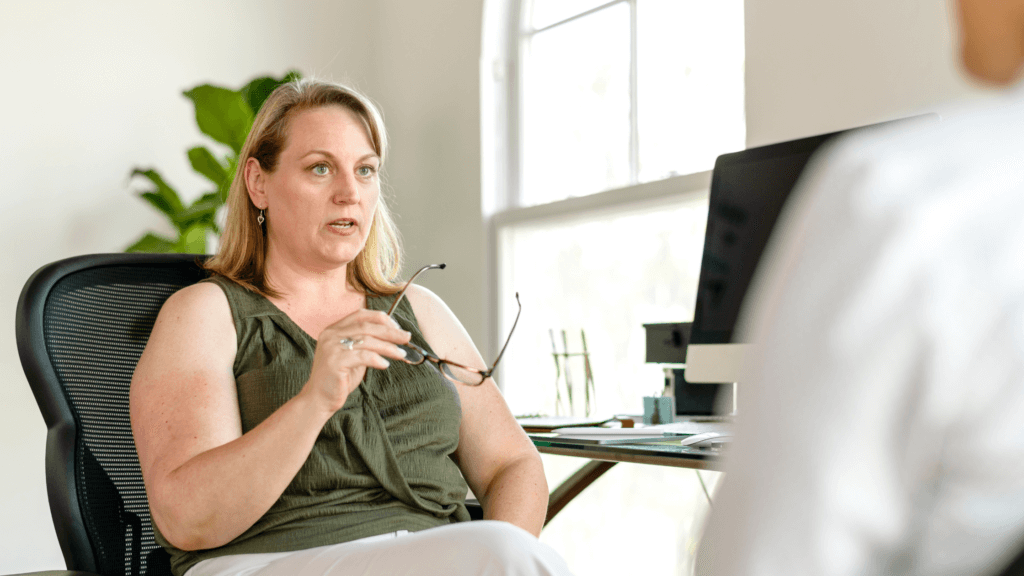

Do you feel trapped in an endless cycle of dieting, restrictive eating, and guilt? You’re not alone.
In this article, you’ll learn a compassionate, non-diet approach to developing a healthier relationship with food and your eating behaviors. Say goodbye to rigid rules and hello to sustainable strategies that align with your values and goals.
Many of us struggle with emotional eating, binge eating, or restrictive patterns that leave us feeling frustrated and disconnected from our true hunger cues. This vicious cycle can take a toll on our physical and emotional well-being, leading to feelings of shame, low self-esteem, and a preoccupation with food. But there is a way out – a path towards a more balanced, intuitive approach to eating.
Coaching Eating Behaviors: What to do instead?
The Cognitive Behavioral Coaching method enables you to explore your motivations, triggers, and patterns surrounding food. It helps cultivate self-awareness, mindfulness, and self-compassion, empowering you to make choices that truly nourish your mind, body, and soul. Prepare to break free from the diet mentality and embrace a healthier, more fulfilling way of living.
Instead of restrictive diets or one-size-fits-all rules, the CBC method encourages a more holistic and personalized approach to developing a healthy relationship with food. It’s about understanding your unique motivations, triggers, and patterns, and finding strategies that work for you – not against you.
Coaching Eating Behaviors Using CBC Coaching
The CBC approach is rooted in the principles of cognitive behavioral coaching, which recognizes that our thoughts, emotions, and behaviors are interconnected. By exploring and understanding these connections, we can identify areas for change and develop more constructive patterns.
Step 1: Understanding How Human Behavior is Generated
The first step in the CBC process is to gain insight into the fundamental drivers of human behavior. Our actions are influenced by a complex interplay of thoughts, emotions, physiological states, and environmental factors. By developing self-awareness and mindfulness, clients can begin to observe these influences without judgment, creating a foundation for lasting change.
Step 2: Investigate the Environment
Our physical and social environments play a significant role in shaping our eating behaviors. This step involves exploring the various cues, triggers, and situations that may contribute to unhealthy patterns. For example, a client may notice that they tend to overeat when stressed at work or when socializing with friends who encourage indulgence. By identifying these environmental factors, we can develop strategies to create a more supportive and conducive environment for healthier choices.
Coaching Eating Behaviors: 6 coaching questions
1. “What does a healthy relationship with food mean to you?”
This deceptively simple question encourages clients to reflect deeply on their values, priorities, and desired outcomes beyond just weight loss or adhering to food rules. A healthy relationship with food means different things to different people – it could mean feeling energized, nourishing their body with foods they enjoy, or setting an example of balance for their children. By defining what success looks like for them, clients can stay motivated and focused on their personal goals.
2. “How do your current eating behaviors align (or misalign) with your values and goals?”
Our actions often stem from deeply ingrained habits, emotions, or coping mechanisms that may no longer serve us. This question prompts clients to examine the alignment between their eating patterns and the things that truly matter to them. Perhaps emotional eating is causing feelings of guilt that conflict with their value of self-care. Or nighttime snacking might be hindering their goal of having more energy during the day. Exploring these disconnects can provide powerful motivation for change.
3. “What situations or emotions tend to trigger unhealthy eating patterns for you?”
Understanding personal triggers is crucial for interrupting unhealthy cycles. Clients may identify stress, boredom, loneliness, or even positive events like celebrations as common triggers for overeating or making poor food choices. Once these triggers are identified, we can co-create coping strategies and alternative behaviors to address them in a healthier way.
4. “How can you practice self-compassion when you experience setbacks or slip-ups?”
Change is rarely linear, and setbacks are an inevitable part of the process. This question encourages clients to treat themselves with kindness and understanding, rather than harsh self-criticism or shame. Self-compassion might involve reassuring self-talk, remembering that one lapse doesn’t undo all progress, or simply taking a moment to breathe and reset.
5. “What small, manageable steps can you take to move closer to your desired eating behaviors?”
Big, sweeping changes can often feel overwhelming and unsustainable. This question helps clients break down their goals into smaller, actionable steps that feel achievable. It could involve strategies like meal planning, trying new recipes, or finding alternative coping mechanisms for difficult emotions. Celebrating these small wins builds confidence and momentum.
6. “How can I best support and encourage you throughout this process?”
Every client is unique, with different needs, preferences, and circumstances. By asking this question, I ensure that my coaching approach is tailored to meet them where they are. Some may benefit from more accountability and structure, while others may need a softer, more self-compassionate style of support. Individualized coaching is key to lasting success.
Step 3: Show Why It’s Not About the Food
While food choices play a role, our relationship with eating often goes much deeper than what’s on our plate. This step involves exploring the underlying thoughts, beliefs, and emotional drivers that influence our behaviors around food. For some, food may serve as a coping mechanism for stress, loneliness, or difficult emotions. For others, deeply ingrained beliefs about body image, self-worth, or societal ideals may contribute to restrictive or binge eating patterns. By uncovering and addressing these root causes, we can begin to shift our relationship with food on a more profound level.
Step 4: Change the Thoughts/Beliefs
Once we’ve identified the unhelpful thoughts or beliefs driving unhealthy eating behaviors, the next step is to reframe and restructure these patterns of thinking. Cognitive-behavioral techniques, such as challenging cognitive distortions, reframing negative self-talk, and cultivating more compassionate inner dialogues, can be powerful tools in this process. For example, a client who believes they “don’t deserve” to eat certain foods might work on replacing that thought with a more balanced and self-accepting perspective. As our thoughts shift, so too can our behaviors and emotional responses to food.
Coaching Eating Behaviors: Key Takeaways
- Ditch the diets and embrace a kinder approach to eating that’s all about self-discovery, not self-denial.
- Get real with yourself about your motivations, triggers, and patterns around food so you can make choices that truly nourish your mind and body.
- Be your own bestie and practice self-compassion when you stumble – change is a journey, not a destination, and you’ve got this!
How we can help
You can access all of our services on our work with us page. We have a number of programs and service levels enabling us to serve most women:
Free Resources and Masterclasses: Get started and get to know us better!
Private coaching with Stephanie and her team Stephanie and her team of Certified Non-Diet Coaches are waiting to support you in a one-to-one setting with an individualized plan.
Undiet Your Life group coaching program is for women to learn how to eat intuitively, become body-neutral, and learn self-coaching at their own pace while being supported in a group setting by Stephanie and her team of Certified Non-Diet Coaches.
Which diet is best for your health?
I was inspired to write this article based on a community member question, “Which diet is best for my health? I need to lose weight to be healthy… right?”
I hope this article helps you determine what is the best diet for you! (Hint: It may not be what you think.) Here’s what we’ll cover in this article:
What does it mean to be healthy?
Does “obesity” cause one to be unhealthy?
Is health beyond dieting and weight loss possible?
What is a weight-neutral approach to health?
Sustainability and health beyond dieting
Who is an ideal candidate for weight-neutral approach to health?
Why It’s Hard to Change Your Beliefs About Weight and Health
The prevalent diet culture conditioned us to believe that thinner is better in all aspects of life including our health. Therefore, dieting is the answer to health so there has to be a “best diet” … right?
We’ve always heard that thin equals healthy, and that dieting is the way to a thinner body. It’s the same indoctrination that leads us into thinking that a thinner body is more attractive because it is associated with health.
What does it mean to be healthy?
We all grew up with the idea that health is the absence of illness. But the World Health Organization has a definition of health that’s different from what we’re all used to. WHO defines health as “a complete state of physical, emotional, and social well-being, not merely the absence of disease or infirmity.”
Good health is essential to being able to handle stress and live a long and active life. It doesn’t just refer to the absence of disease, but also to the ability to recover from illness, to adapt to life challenges in general.
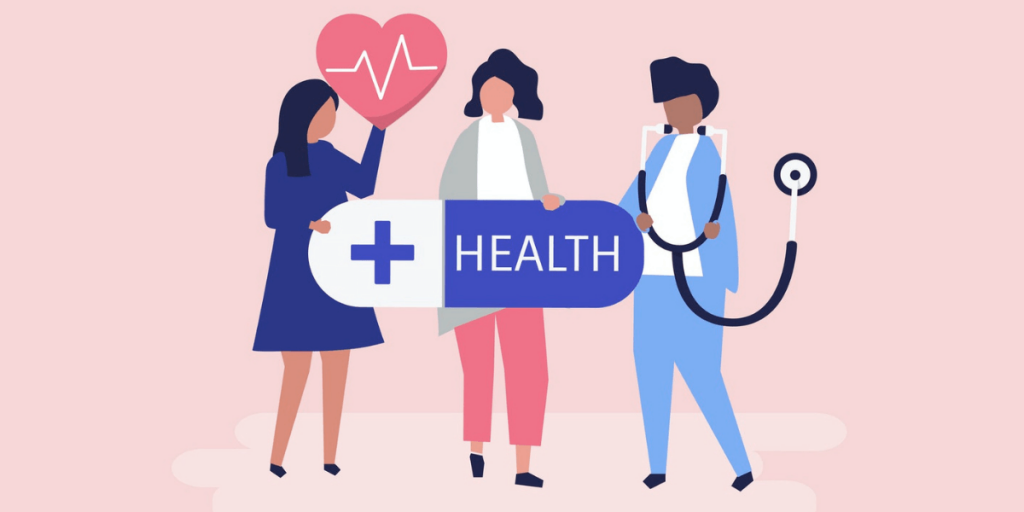

Does “obesity” cause one to be unhealthy?
The keyword here is CAUSE. Before we can answer the question, we must first understand the difference between correlation and causation. For example, smoking is correlated with alcoholism, but it doesn’t cause alcoholism. However, smoking causes an increased risk of developing lung cancer.
For example, a research found that obesity does not affect the risk of having coronary heart disease and stroke “Metabolic status is relatively stable despite rising BMI”. (However, it does increase the risk of developing diabetes)
But if the question is, “Is obesity associated or correlated with health risks?” the answer would be yes. If the question is “Is obesity causing disease?” the answer would be no. That’s where the big difference lies.
Here’s where it gets interesting – one-third to three-quarters of people classified as obese are actually metabolically healthy. Being metabolically healthy means having your blood pressure, cholesterol, glucose levels, and other metabolic markers within the normal range. That’s me and millions of “overweight” women.
Is health beyond dieting and weight loss possible?
Yes, and scientific research proves it!
A 2016 study by researchers at UCLA studied 40,420 adult participants in the most recent U.S. National Health and Nutrition Examination Survey. Researchers looked at the participants’ health as measured by six accepted metrics (not including BMI). These metrics are blood pressure, cholesterol, triglyceride, glucose, insulin resistance, and C-reactive protein.
The study found that 47% of people classified as overweight by BMI and 29% of those qualified as obese were healthy based on at least five of those other metrics.
Meanwhile, 31% of normal-weight people were unhealthy by two or more of the same measures.
What is a weight-neutral approach to health?
A weight-neutral approach to health is based on the idea that your health status or risk level can’t be determined solely by your weight.
It acknowledges that your weight is determined by a complex set of genetic, metabolic, physiological, cultural, social, and behavioral determinants. Many of these factors are either difficult or impossible to change.
Instead of focusing on a weight-oriented outcome, weight-neutral programs teach you to take charge of the factors within your control. These factors include your thoughts and behaviors. Taking charge of these factors will help you improve your well-being, regardless of your weight.
Research have demonstrated the weight-neutral approach to health have significantly decreased body dissatisfaction, disordered eating, and depression. They’ve also increased sustainable, enjoyable self-care behaviors such as eating and moving well in the long term.
The Going Beyond The Food Method️ is a weight-neutral and non-diet health framework composed of eight core elements. Our health framework is grounded in holistic principles and functional medicine approach to health. It’s a five-step process that includes mindset, emotional regulation, mindfulness, body neutrality, and intuitive eating.
The method️ is based on four core pillars: Body Wisdom, Body Trust, Body Respect, and Body Neutrality.
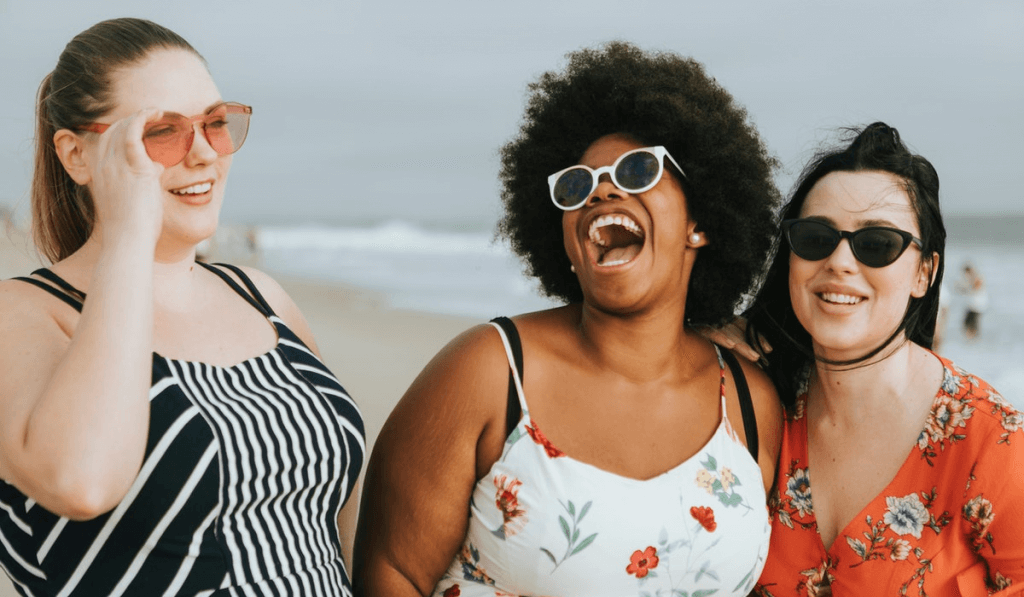

Sustainability and health beyond dieting
The single most powerful advantage of a weight-neutral and non-diet approach like the Going Beyond The Food Method️ is sustainability. It helps you develop the ability to sustain health-promoting behaviors throughout your life.
Certainly, when it comes to health, consistency is significantly more powerful than short-term results.
A 2015 study systematically reviewed a weight-neutral and no-diet approach to health. It determined the overall effects on factors including weight, biochemical measures, food, activity, behavior, body image, and mental health.
- Weight stability (in 5 yrs)
- Improved biochemical markers
- Cholesterol, blood sugar, blood pressure, CRP
- Sustained healthy behaviors & Improvement in:
- Dietary quality
- Psychological states
- Disordered eating patterns
- Self-esteem
- Depression
Who is an ideal candidate for a weight-neutral approach to health?
Truly anyone! Individuals who’ll benefit most from this approach are:
- Chronic dieters
- Women who are overly concerned with weight and shape (a.k.a. body image issues)
- Those who are repeatedly trying to lose weight and restricting food for two years or more
- Women who have had enough of dieting and regaining the weight that they lost
- Women who are intuitive eaters
Why it’s hard to change your beliefs about weight and health
Your reptilian brain is the reason why it’s not easy to let go of beliefs. It’s the most primal part of your brain that has the survival instinct. It seeks to protect you from danger. Because the diet culture has programmed your reptilian brain into believing that fat people aren’t healthy, you’ve since associated health with thinness.
That’s why your approach to health must also include mindset and thought reprogramming tools to help you change your core beliefs and negative self-talk. That’s what we do first inside our Conquer & Thrive community… been there done that as they say.
You can view the methodology in more details here.
Get started with the weight-neutral approach to health
To help you get started with the weight-neutral approach to health and make peace with food and your body, I have created a free audio guide for you to know exactly what to do when you stop dieting, emotional eating, binge eating and body image issues. Claim your way to freedom now!
What does it mean to be healthy?
Good health is essential to being able to handle stress and live a long and active life. It doesn’t just refer to the absence of disease, but also to the ability to recover from illness, to adapt to life challenges in general.
Does “obesity” cause one to be unhealthy?
The keyword here is CAUSE. Before we can answer the question, we must first understand the difference between correlation and causation. For example, smoking is correlated with alcoholism, but it doesn’t cause alcoholism. However, smoking causes an increased risk of developing lung cancer.
Is health beyond dieting and weight loss possible?
Yes, and scientific research proves it!
A study found that 47% of people classified as overweight by BMI and 29% of those qualified as obese were healthy based on at least five of those other metrics. Meanwhile, 31% of normal-weight people were unhealthy by two or more of the same measures.
What is a weight-neutral approach to health?
A weight-neutral approach to health is based on the idea that your health status or risk level can’t be determined solely by your weight.
It acknowledges that your weight is determined by a complex set of genetic, metabolic, physiological, cultural, social, and behavioral determinants. Many of these factors are either difficult or impossible to change.
Who is an ideal candidate for a weight-neutral approach to health?
Truly anyone! Individuals who’ll benefit most from this approach are:
>> Chronic dieters
>> Women who are overly concerned with weight and shape (a.k.a. body image issues)
>> Women who are repeatedly trying to lose weight and restricting food for two years or more
>> Women who have had enough of dieting and regaining the weight that they lost
>> Women who are intuitive eaters
Why it’s hard to change your beliefs about weight and health
Your reptilian brain is the reason why it’s not easy to let go of beliefs. It’s the most primal part of your brain that has the survival instinct. It seeks to protect you from danger. Because the diet culture has programmed your reptilian brain into believing that fat people aren’t healthy, you’ve since associated health with thinness.
Overcoming Negative Body Thoughts
When I first set out in search of non-diet interventions that could change the course of my relationship to food and overcoming negative body thoughts, I came across a study about the impact of body satisfaction on healthy behaviors, including food & exercise. That blew my mind.
I will share that with you in this blog post that focuses on body image and how it impacts your relationship to food. I will also tackle the concept called body neutrality and how it is different from body positivity; as well as intuitive eating. I’ll also share with you a free tool that I created to get you started with body neutrality and intuitive eating so you can enjoy your full life now… regardless of your body size. Here’s what you’re going to learn from this article:
Overcoming negative body thoughts
Body neutrality versus body positivity
Body neutrality and intuitive eating
Overcoming negative body thoughts
A 2013 study published by the Journal of Obesity study found no link between body weight and the way women feel about themselves.
Yet, the findings show a link between how women feel about themselves and the healthy activities they engage in. Meaning, the better they felt about their bodies, the more likely they were to take care of themselves by eating well and being active. This allows them to create a positive cycle.
Likewise, dissatisfaction with their bodies discouraged the women from taking part in certain activities, eating properly to fuel their bodies, and could eventually lead to weight gain.
“Body satisfaction or dissatisfaction isn’t correlated with body weight,” the research concluded.
That blew my mind. That meant overcoming negative body thoughts and making peace with my body size could actually improve my health behaviors, eat better and ultimately be healthier now… unconditional of my body size.
That’s how body neutrality was born.


What is Body Neutrality and how it helps in overcoming negative body thoughts
Body Neutrality empowers you to embrace yourself as you are, including the parts you don’t like about yourself.
Its focus is to avoid self-hate while simultaneously relieving you from the pressure of having to love your body.
The goal is to respect and accept your body for what it is – and that’s it.
Body Neutrality recognizes that not everyone is going to love every part of themselves all the time because that’s an unrealistic expectation, to say the least.
The reality is that some days you’re going to look in the mirror like, “Damn it, yeah, thank you, legs for letting me travel. Thank you, arms, for allowing me to type this inspirational post and thank you, belly, for creating life!”
And then, there’ll be those days where you stand in front of the very same mirror, focusing on that cellulite you hate or the wrinkle that suddenly seems so obvious.
Body neutrality versus body positivity
Embracing Body Neutrality over Body Positivity allows you to experience negative feelings about yourself, but without the pressure that comes with having to be positive all the time.
In other words, it’s a middle ground between positivity and negativity (shaming) – that’s neutrality.
Body Neutrality is the safe bridge between body shaming and body positivity. It’s about being grateful for your body and everything it does for you because it does a lot. You are alive right now.
So, Body Neutrality is centric on the process of accepting your body.
Body Neutrality & Intuitive Eating
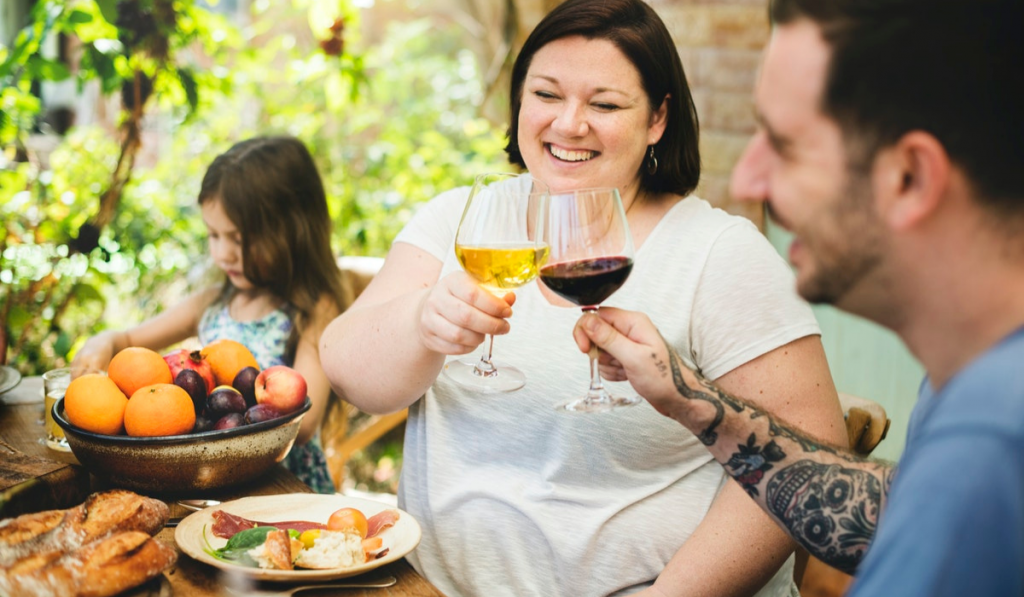

For many of us, we’ve had years of suffering through body shaming. Along the way, we’ve picked up coping behaviors to neutralize the pain associated with body image struggles.
Being the victim of body shaming, most of it from our own mind, is difficult, to say the least. So, no wonder that many of us have become, along the way, emotional eaters or binge eaters.
Combine the suffering that comes along with body shaming with the notion that food is the gateway to “loving our life and body,” food has become this enemy that we need to control in order to end the suffering.
Healing our relationship to food is necessary in order to make peace with our body. Intuitive eating is the way in which you can achieve both: body neutrality and peace with food.
Moreover, intuitive eating teaches you to respect your body.
Intuitive eating teaches you to respect your innate body messages. This includes hunger and fullness to have a healthy and respectful relationship with your body. This is what we teach the women inside our Conquer & Thrive community so they can live and enjoy their full life right now… unconditionally!
The bottom line
You can’t hate yourself to health or peace. Love always wins. Always.
Acceptance doesn’t mean giving up. It means seeing what is and adopting a non-judgmental perspective. Accepting allows you to improve and grow instead of obsessing about why it’s wrong and stress over the results.
Need help to get started with Body Neutrality and Intuitive Eating?
I have created a free audio guide for you to get started with body neutrality and intuitive eating and finally overcome negative body thoughts so you too can be on your way to freedom!
How to overcome negative body thoughts?
A 2013 study published by the Journal of Obesity study found no link between body weight and the way women feel about themselves. Yet, the findings show a link between how women feel about themselves and the healthy activities they engage in. Meaning, the better they felt about their bodies, the more likely they were to take care of themselves by eating well and being active, allowing them to create a positive cycle.
That meant overcoming negative body thoughts and making peace with my body size could actually improve my health behaviors, eat better and ultimately be healthier now… unconditional of my body size.
What is Body Neutrality?
Body Neutrality empowers you to embrace yourself as you are, including the parts you don’t like about yourself. Its focus is to avoid self-hate while simultaneously relieving you from the pressure of having to love your body. The goal is to respect and accept your body for what it is – and that’s it.
Body neutrality versus body positivity
Embracing Body Neutrality over Body Positivity allows you to experience negative feelings about yourself, but without the pressure that comes with having to be positive all the time. Body Neutrality is the safe bridge between body shaming and body positivity. It’s about being grateful for your body and everything it does for you because it does a lot. You are alive right now.
Body Neutrality & Intuitive Eating
Healing our relationship to food is necessary in order to make peace with our body. Intuitive eating is the way in which you can achieve both: body neutrality and peace with food. Intuitive eating teaches you to respect your innate body messages such as hunger and fullness to have a healthy and respectful relationship with your body.
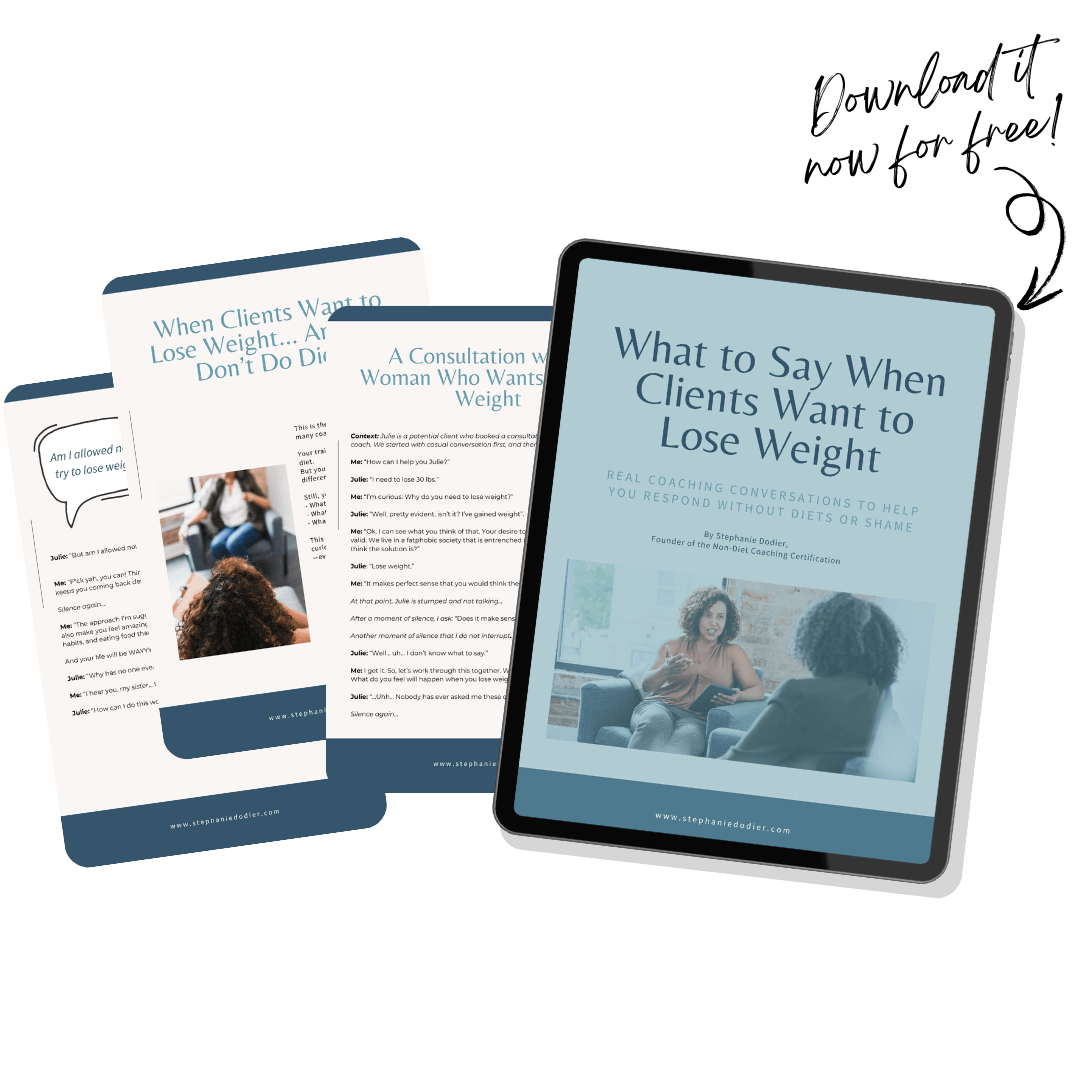

FREE GUIDE
What to say when a client want to lose weight
GET THE EXACT WORDS I USE IN REAL COACHING SESSIONS—WHEN WEIGHT LOSS COMES UP AND I’M HOLDING A WEIGHT-NEUTRAL STANCE


FREE GUIDE
What to say when a client want to lose weight
Get then exact word I use in real coaching session when weight loss comes up and I’m holding a weight-neutral stance
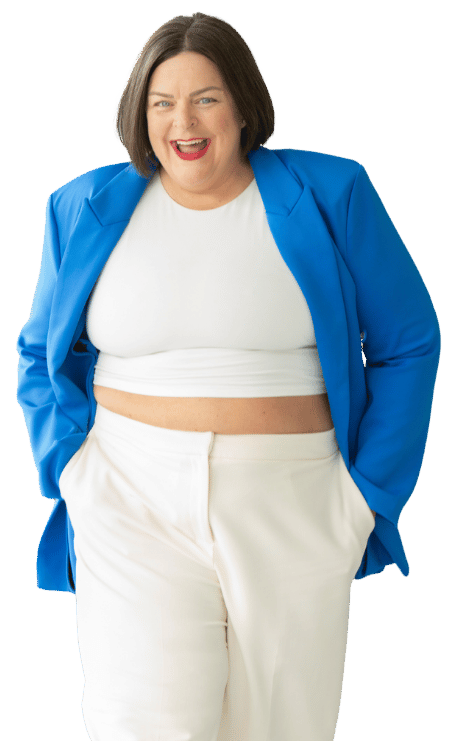

Welcome!
I’m Stephanie Dodier
I am a non-diet nutritionist, educator, and feminist business leader challenging everything we’ve been taught about food, health, and coaching.
I help health professionals confidently coach food and body without co-opting diet culture.
Join me in leading the health coaching revolution!
Ready? Let’s do this!

